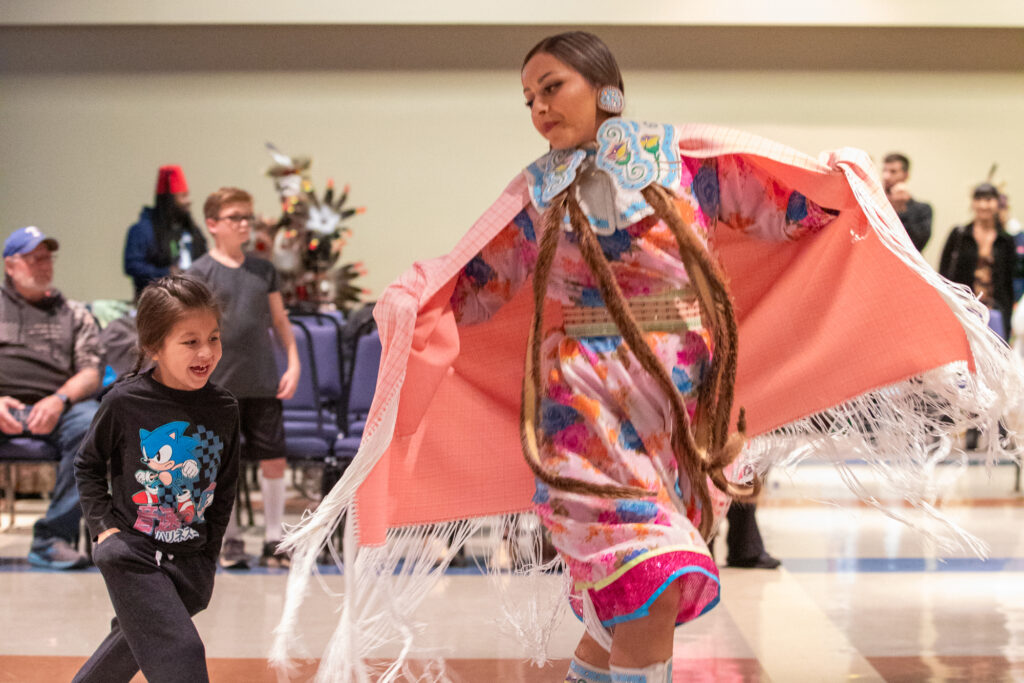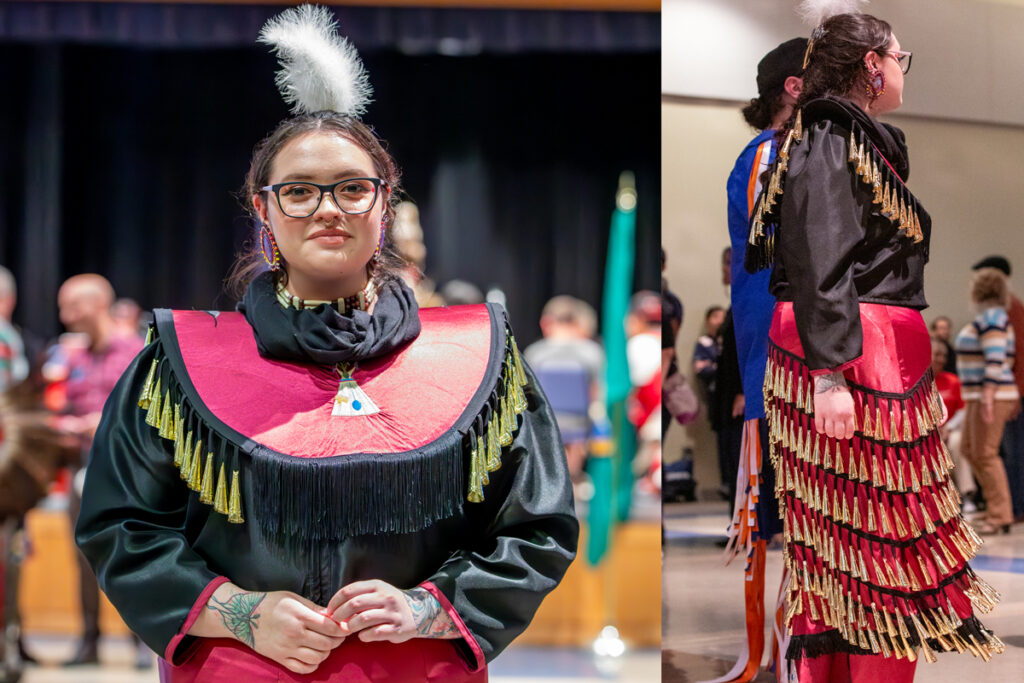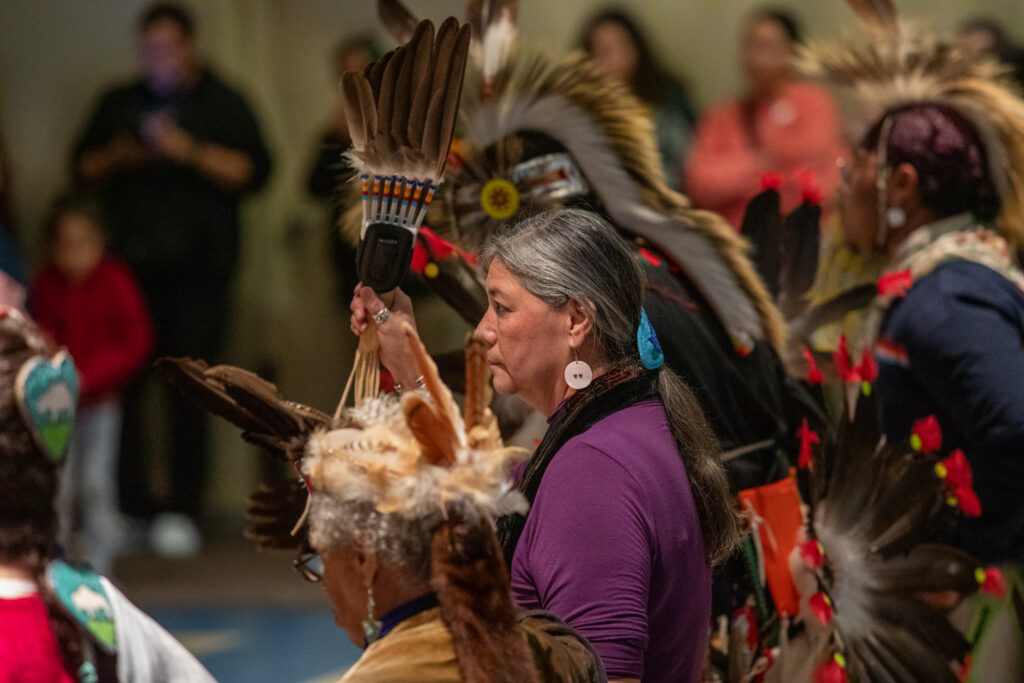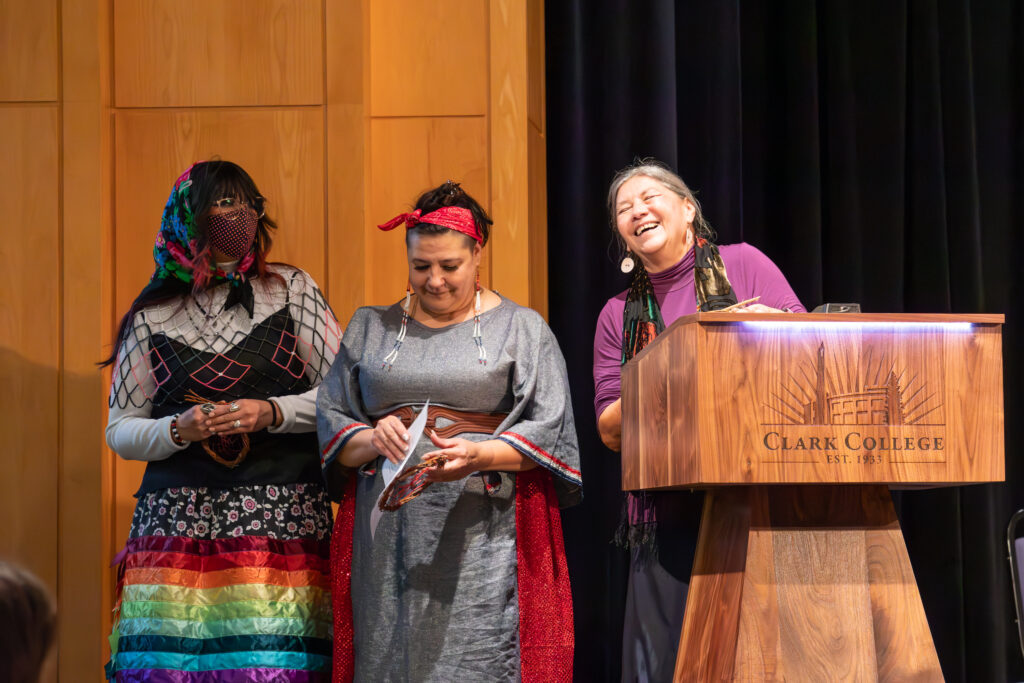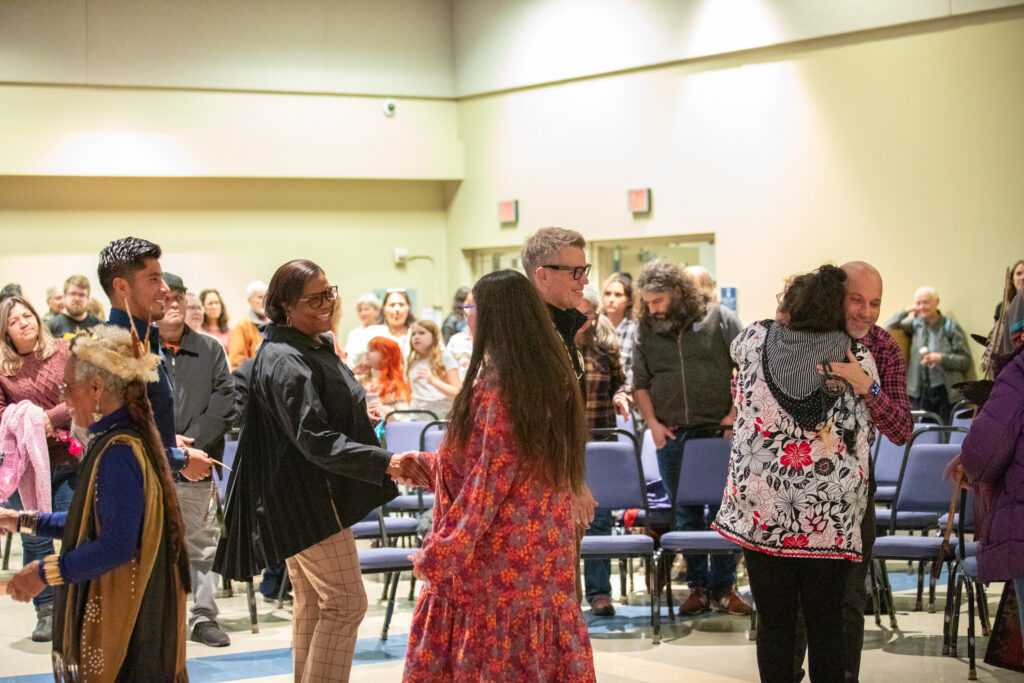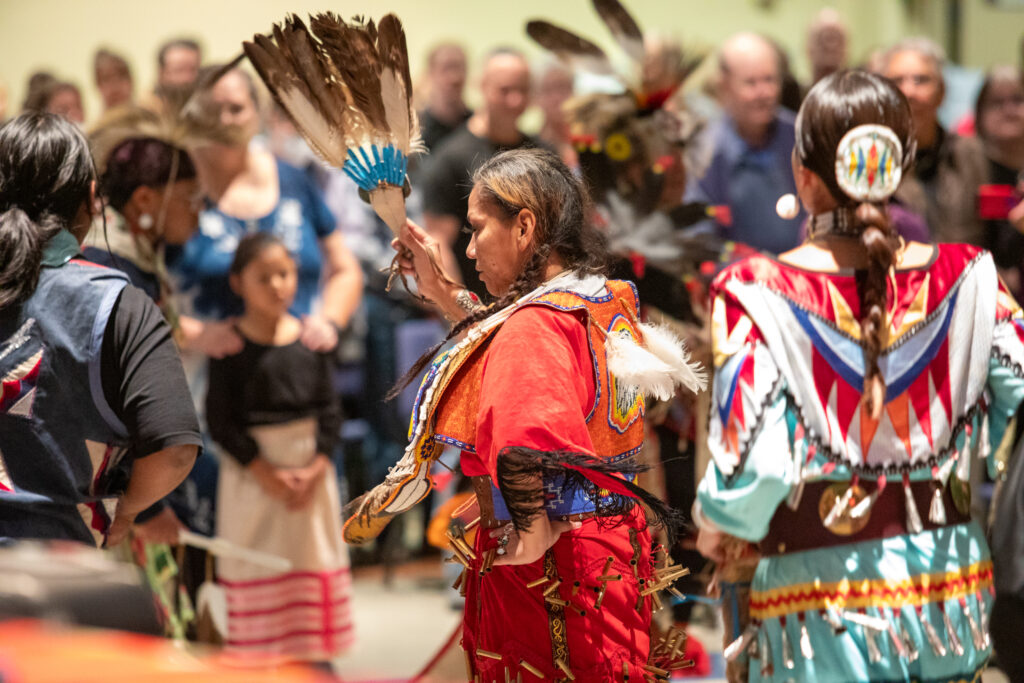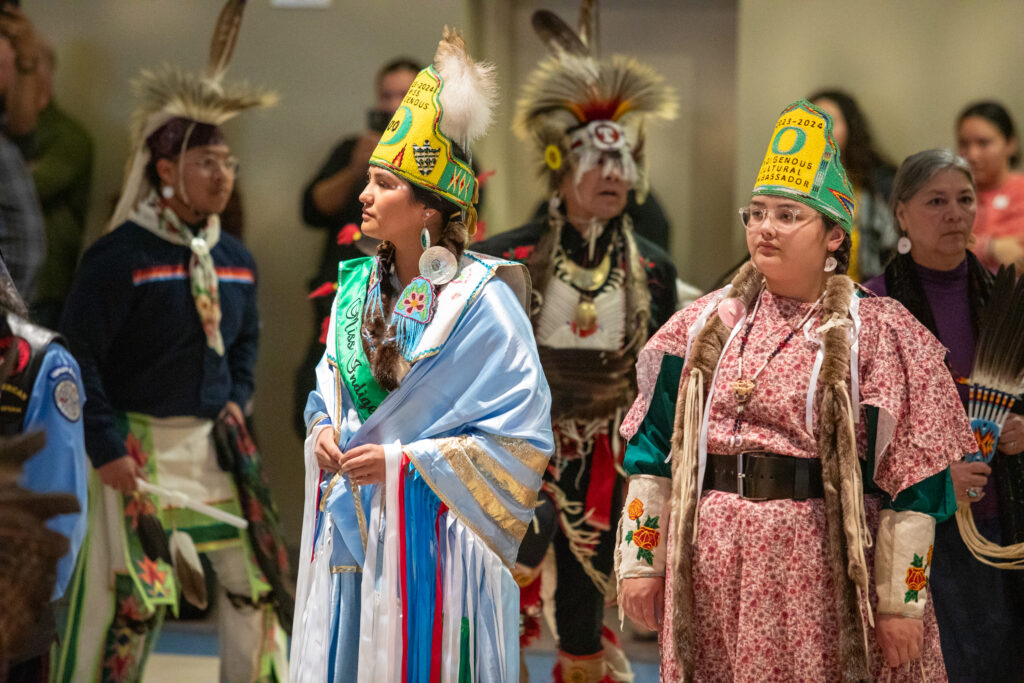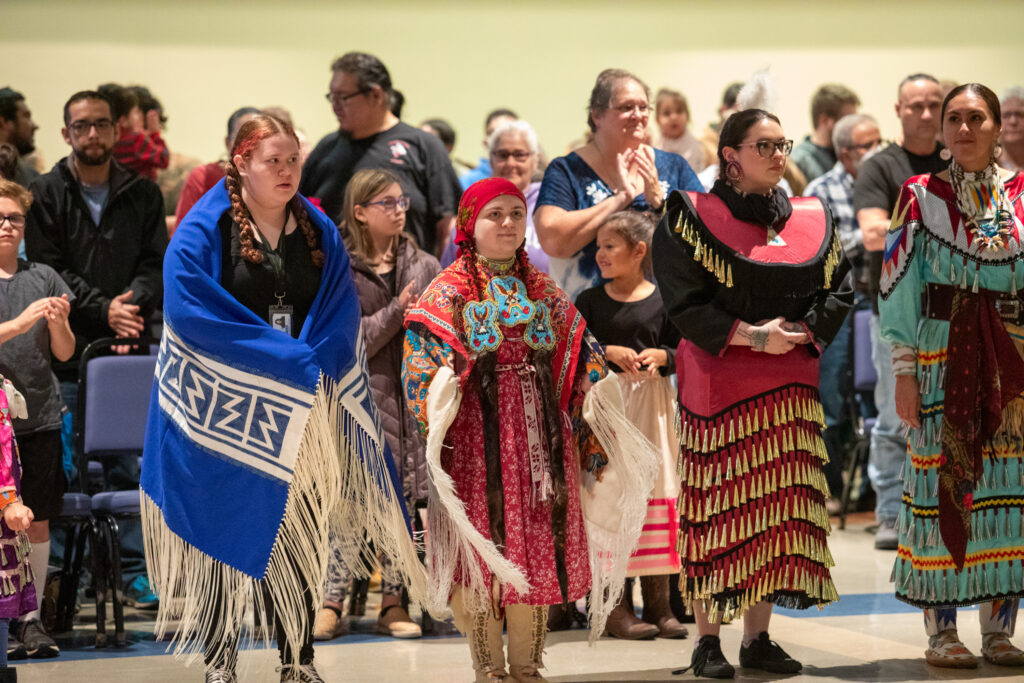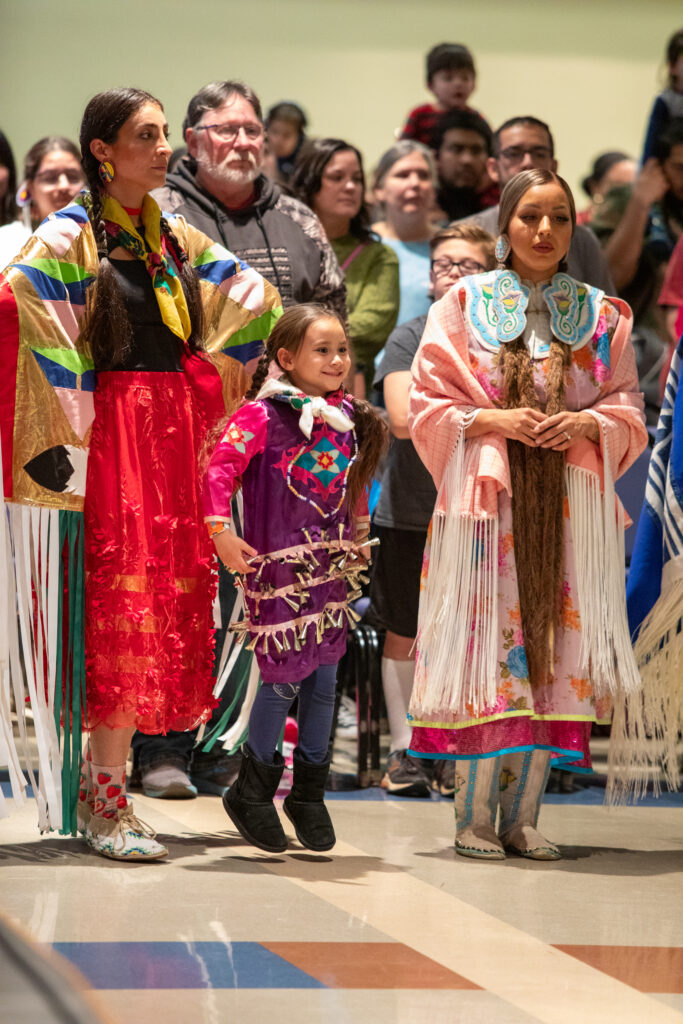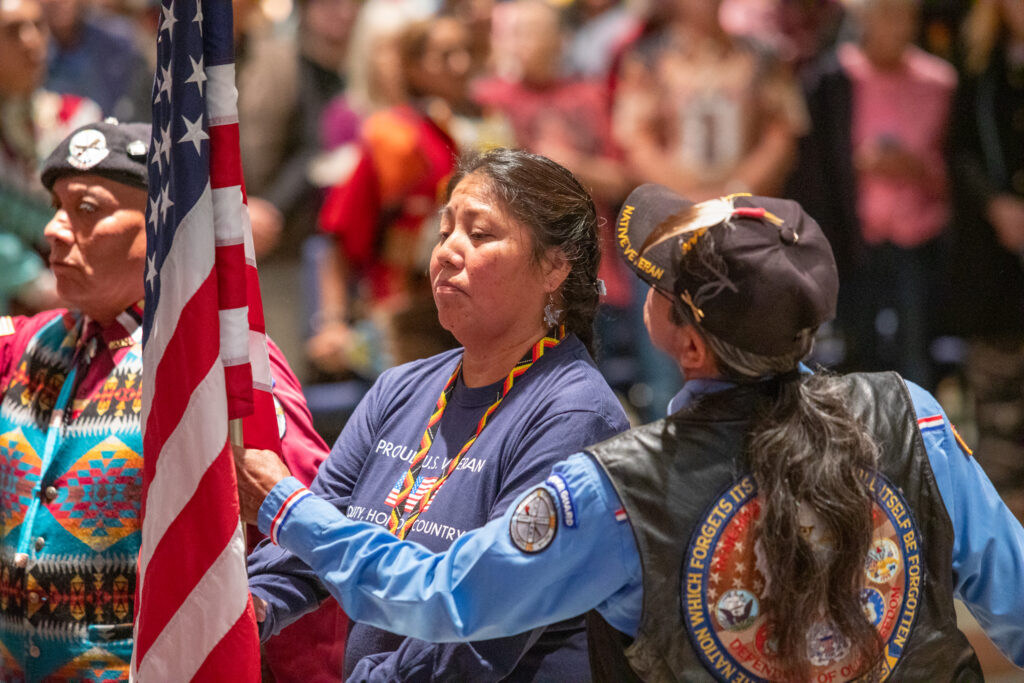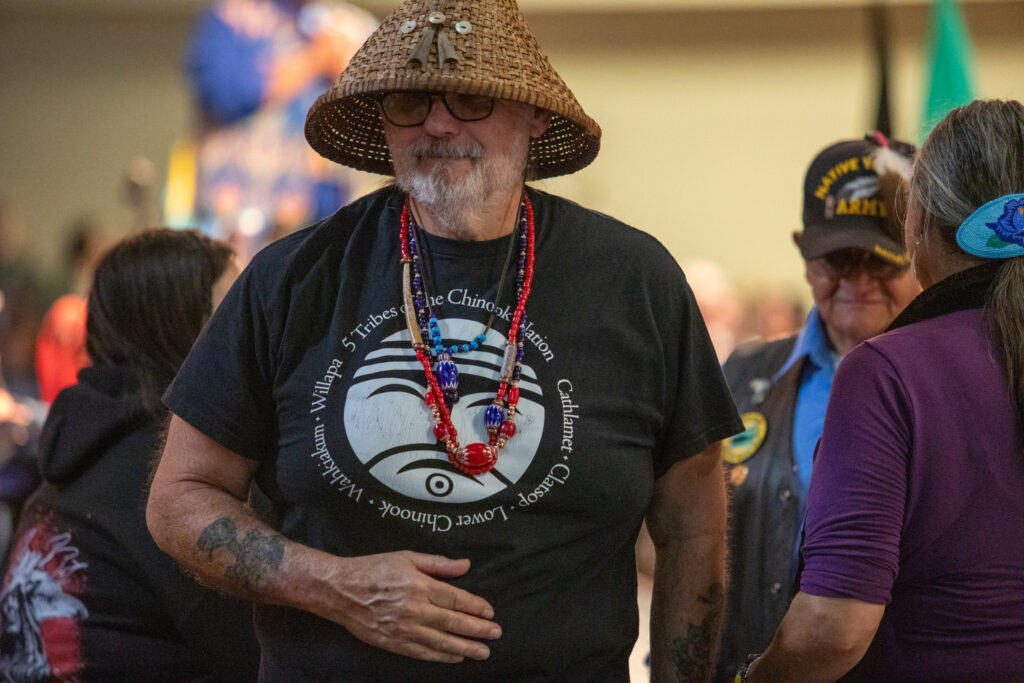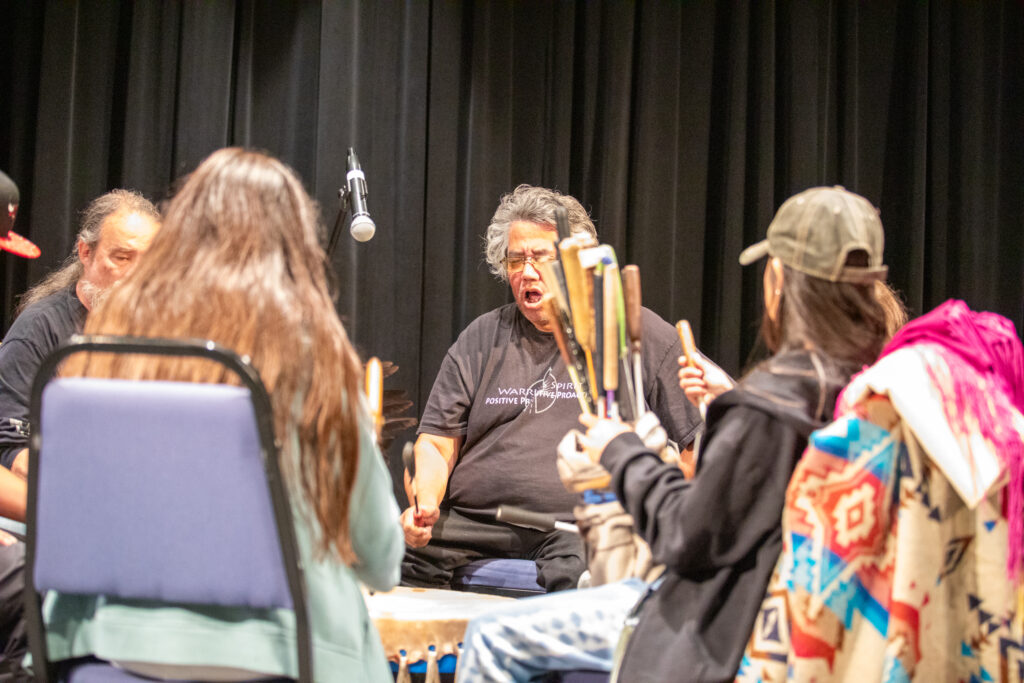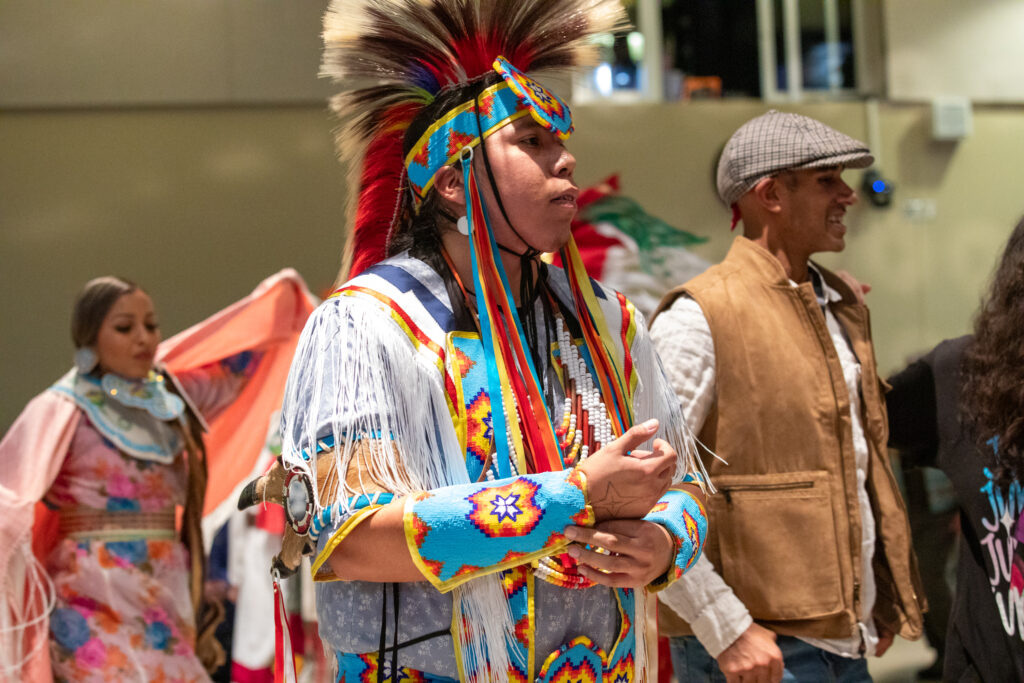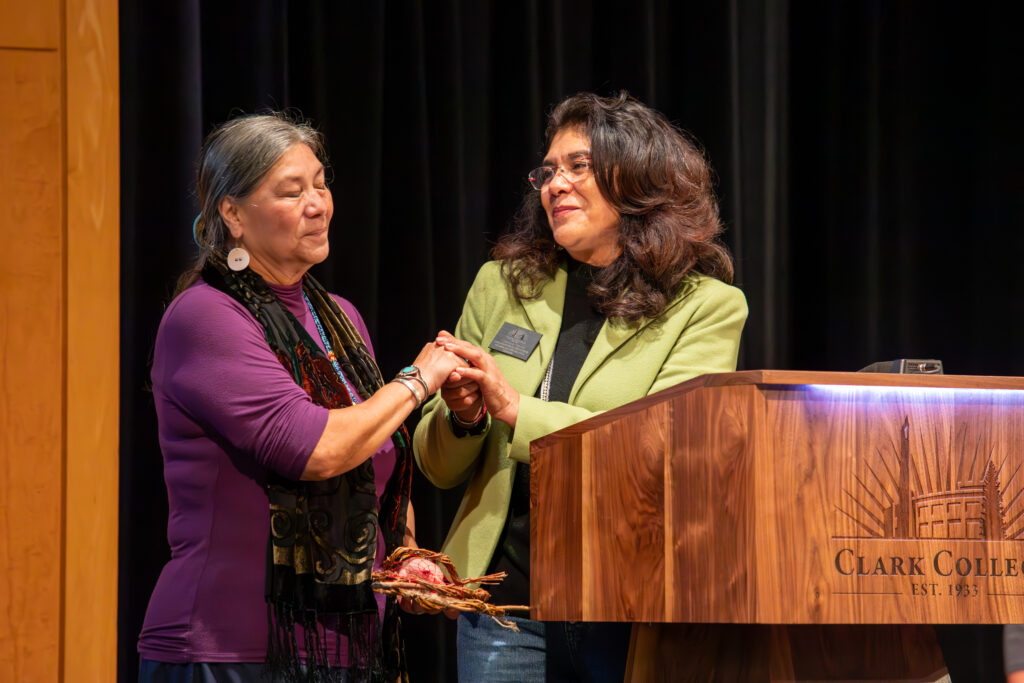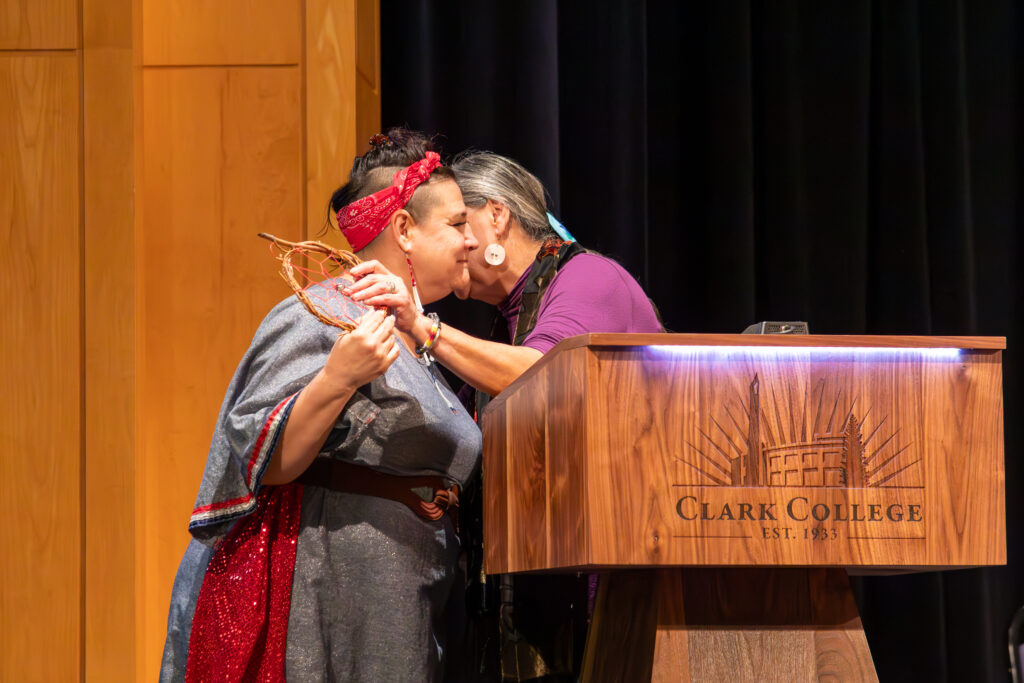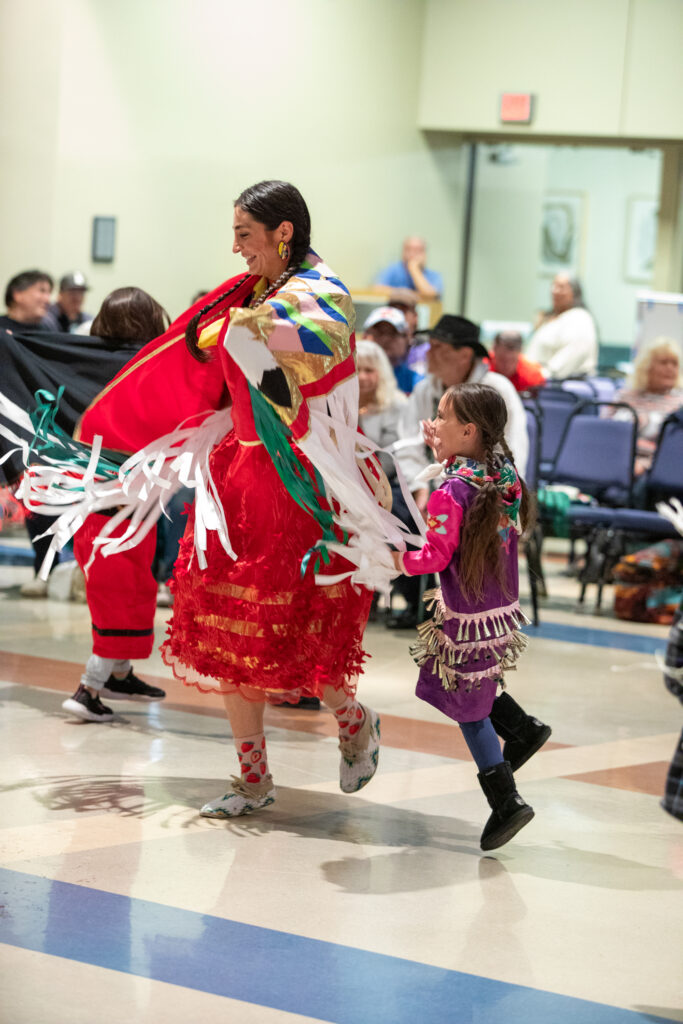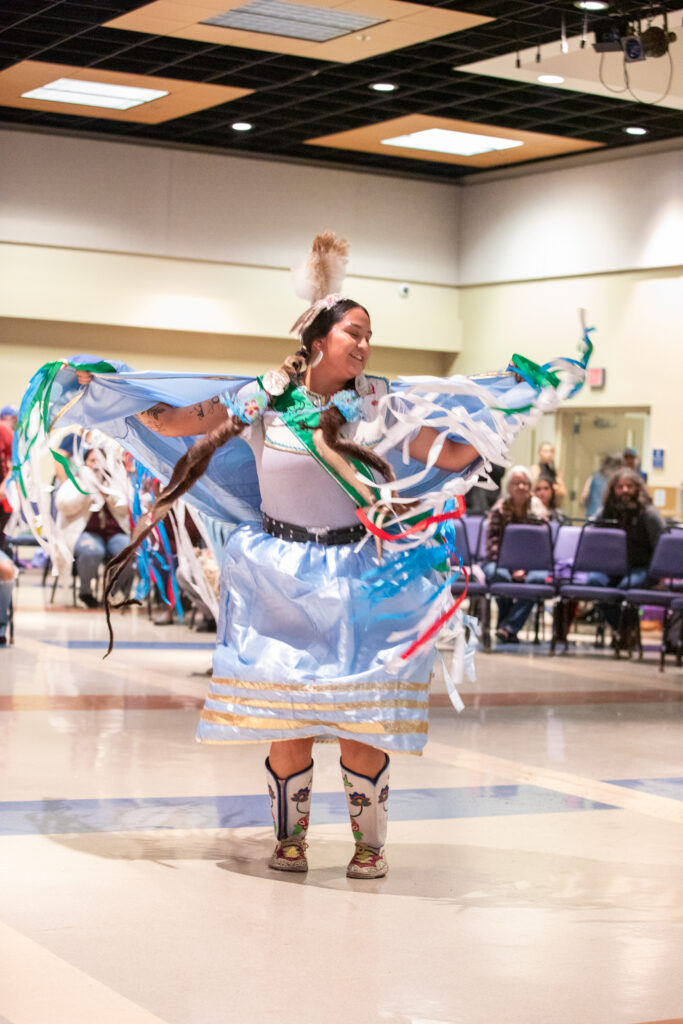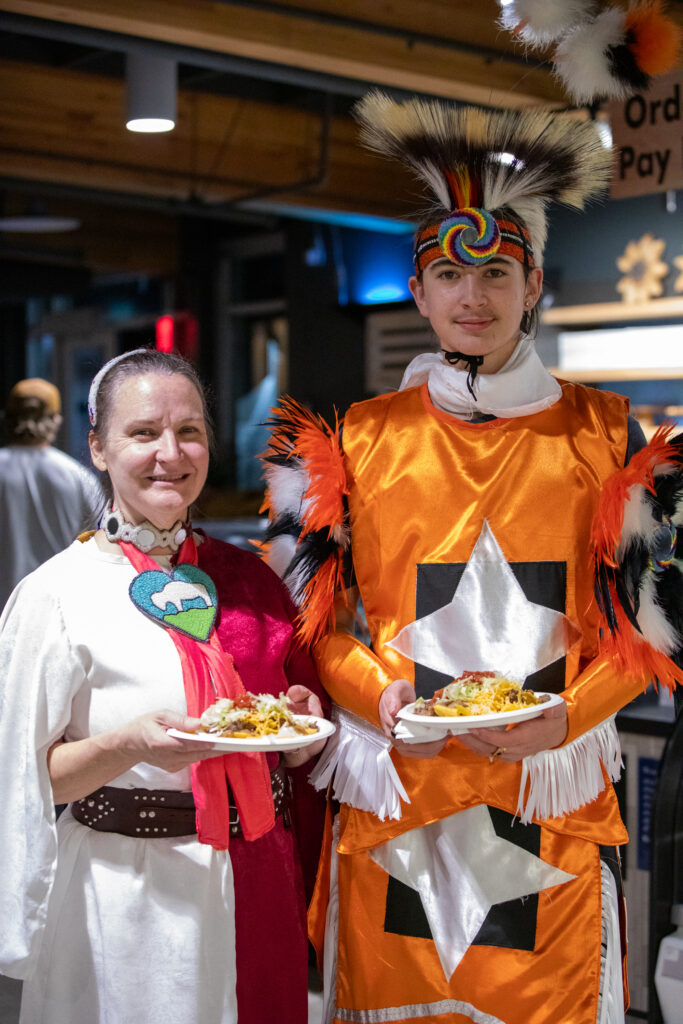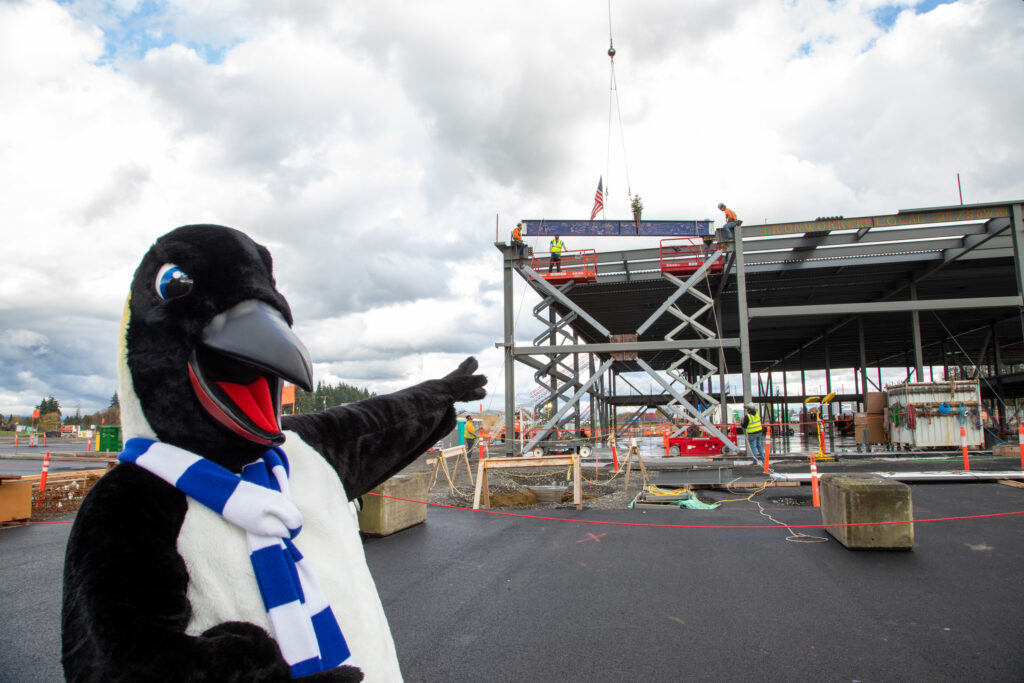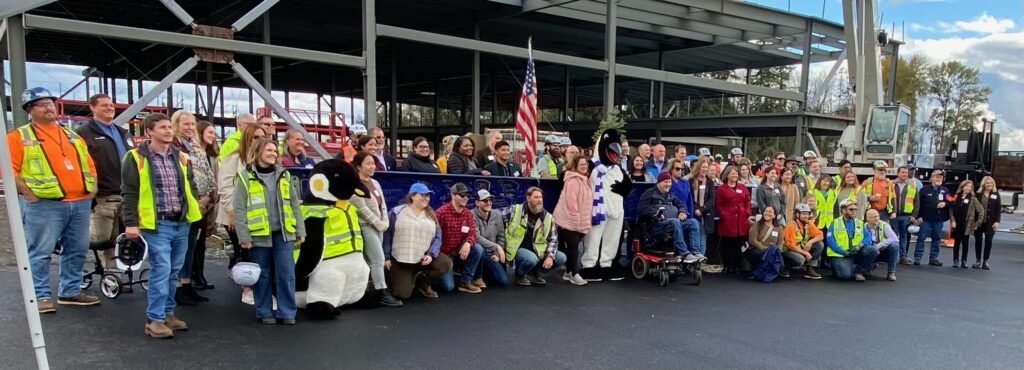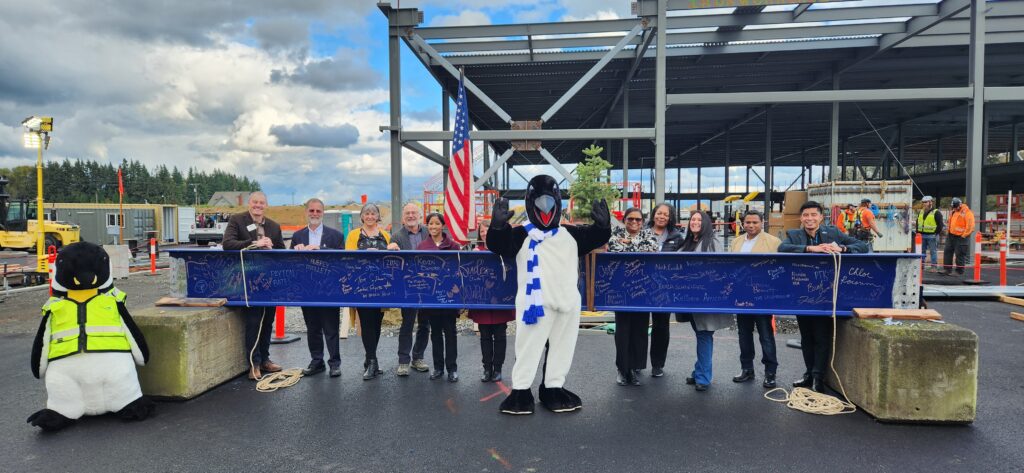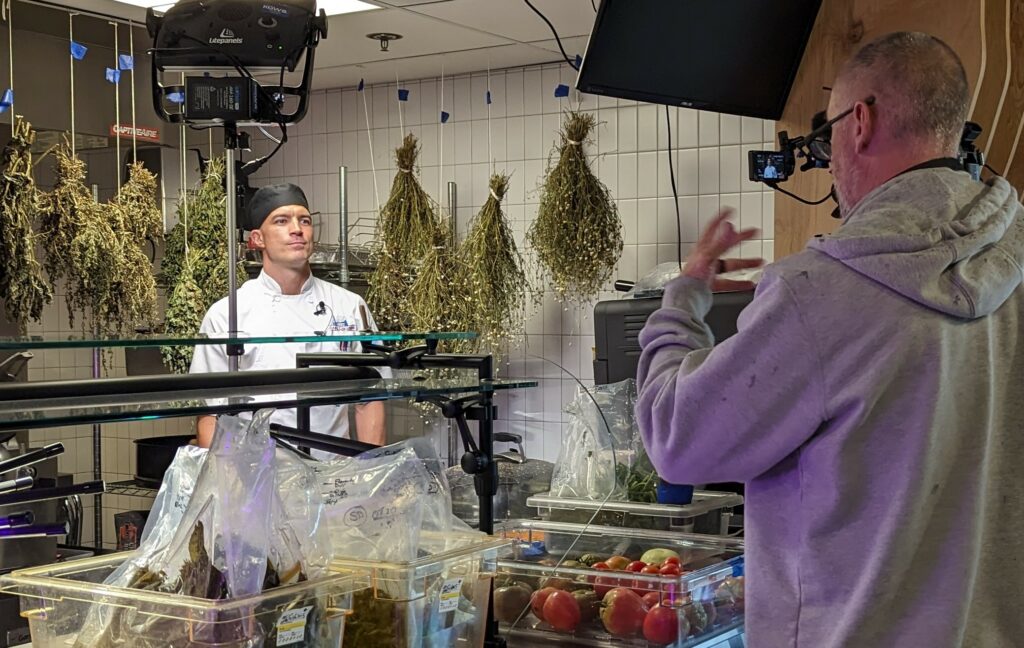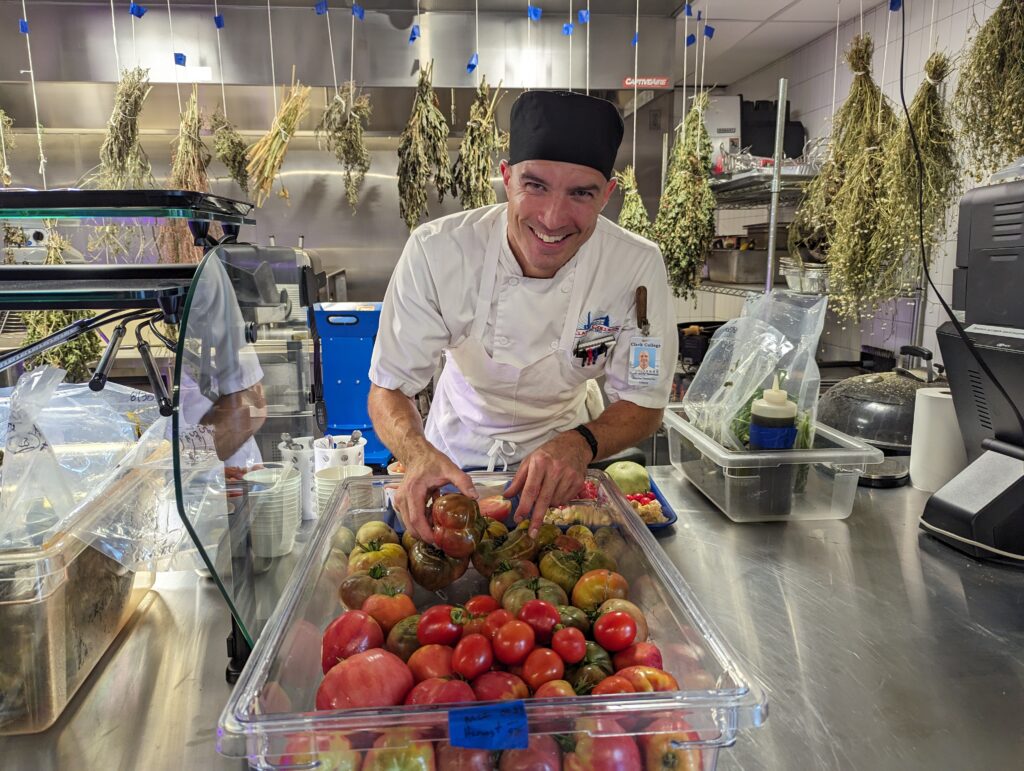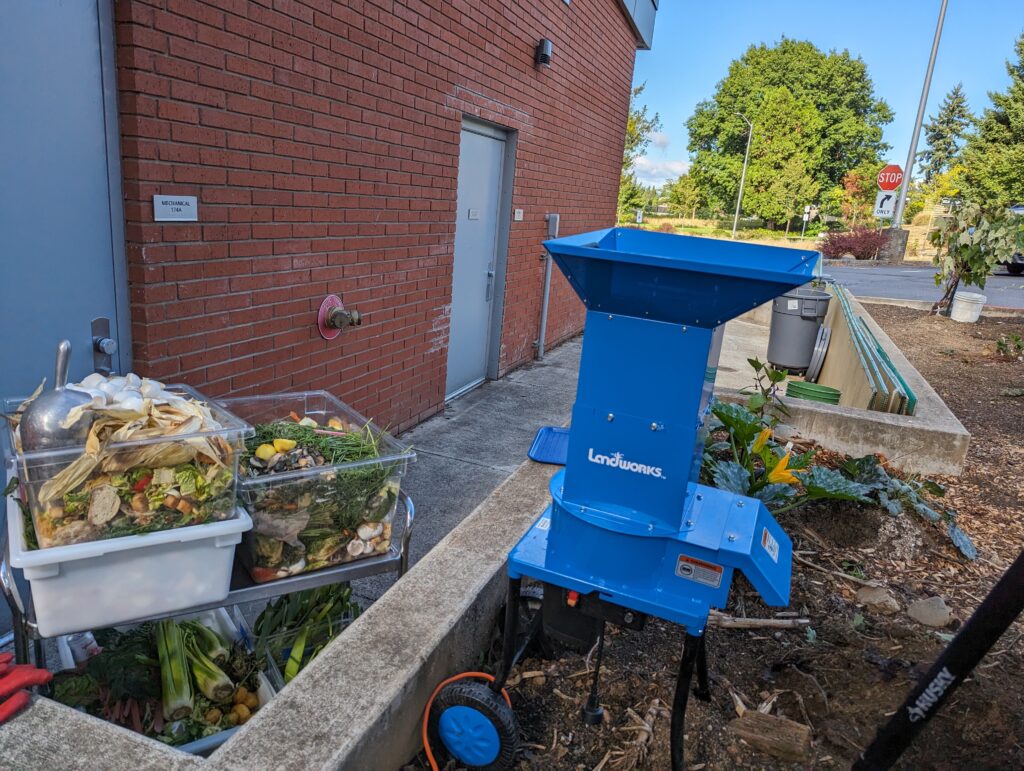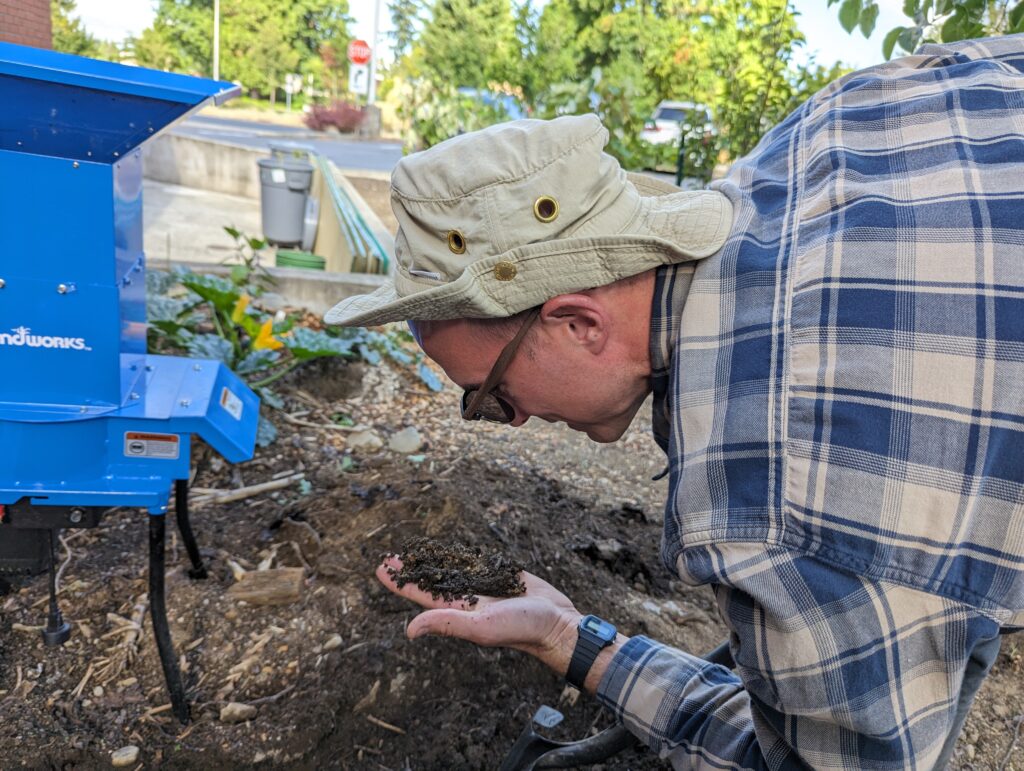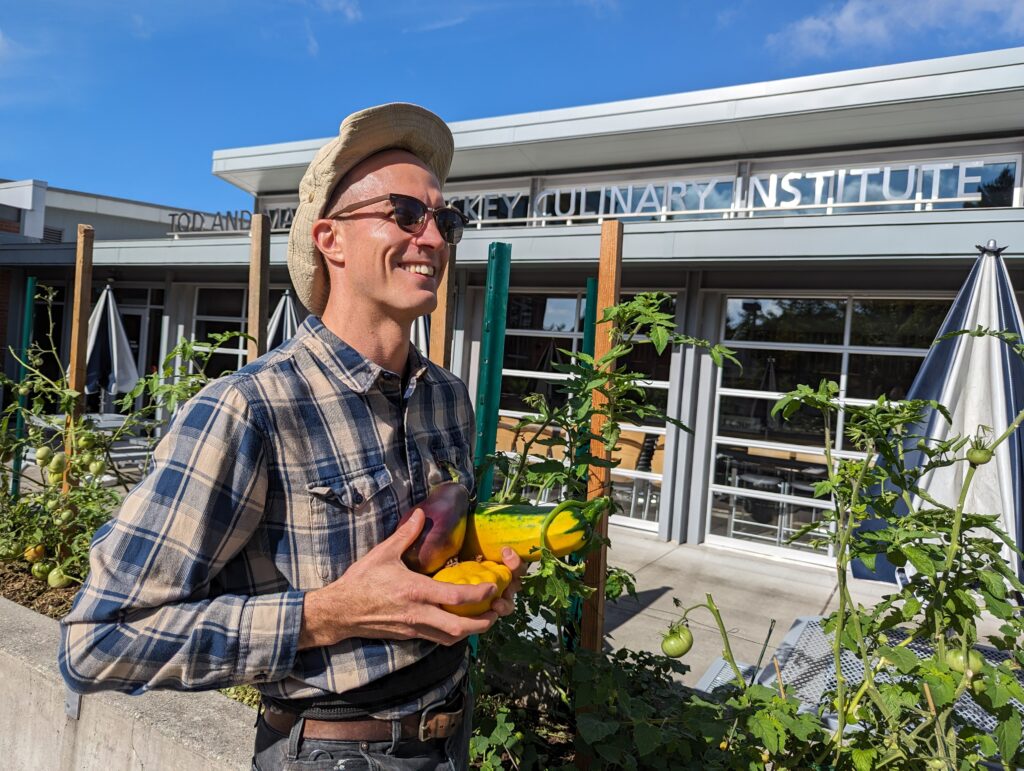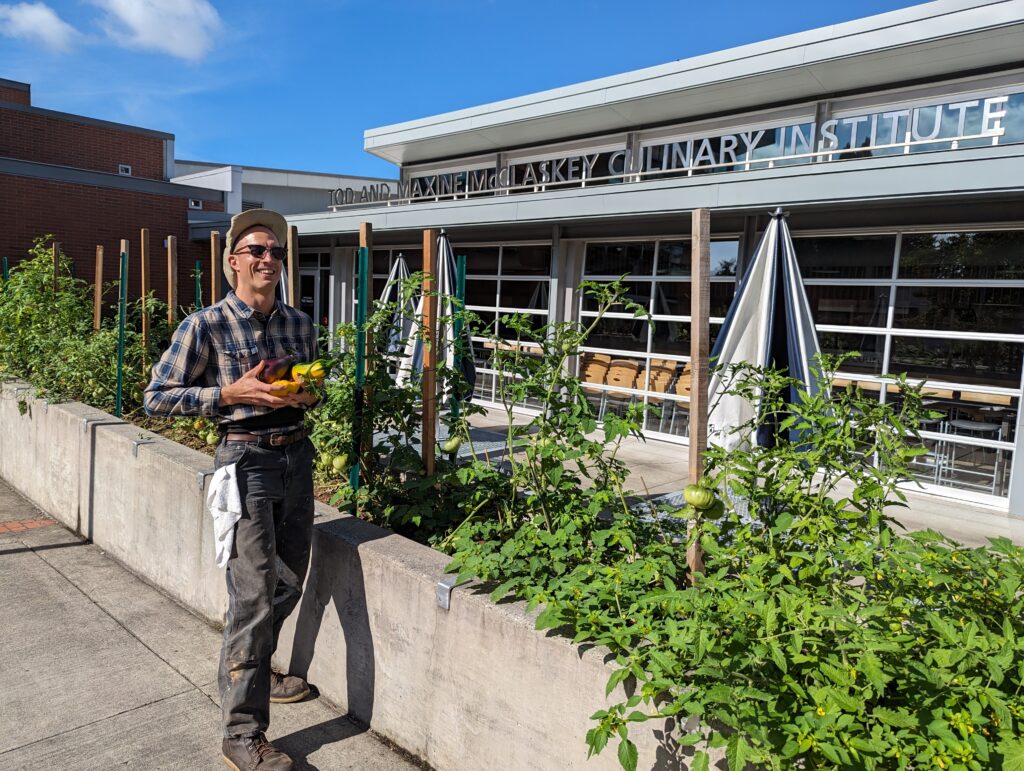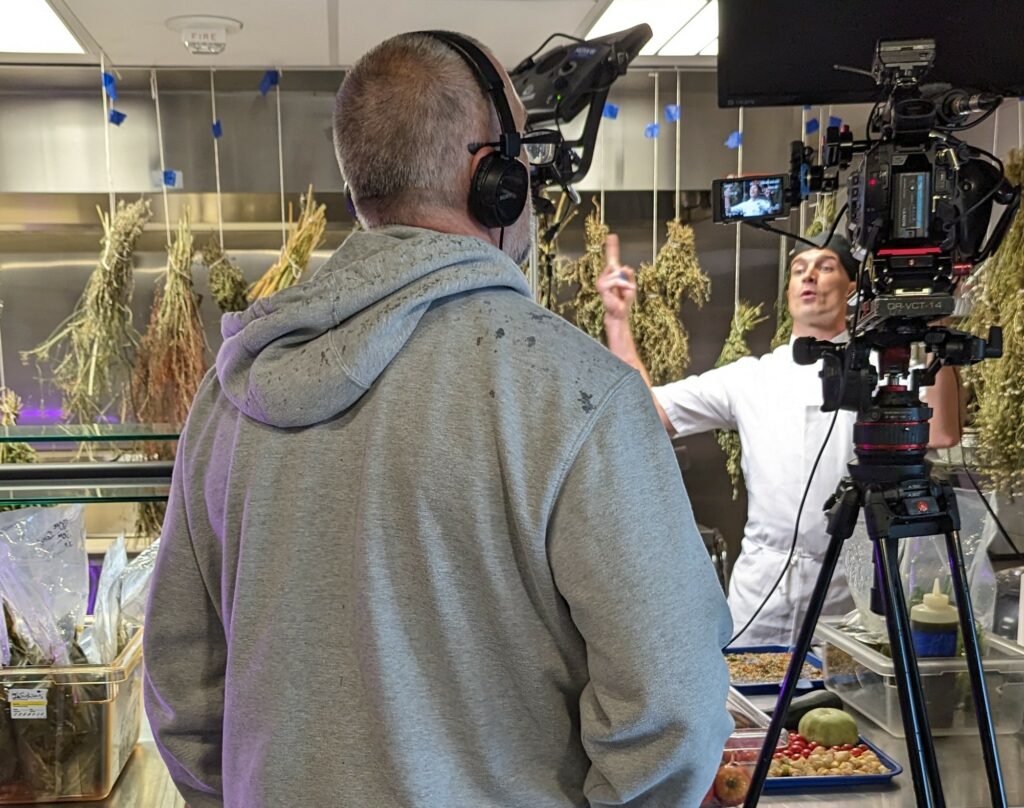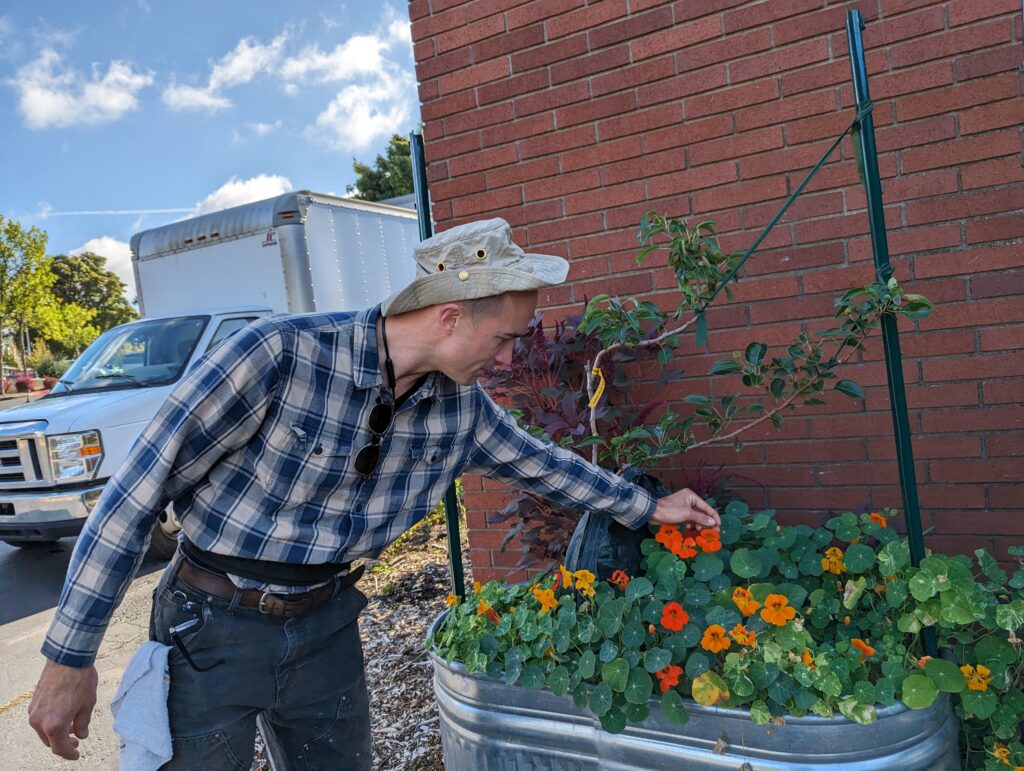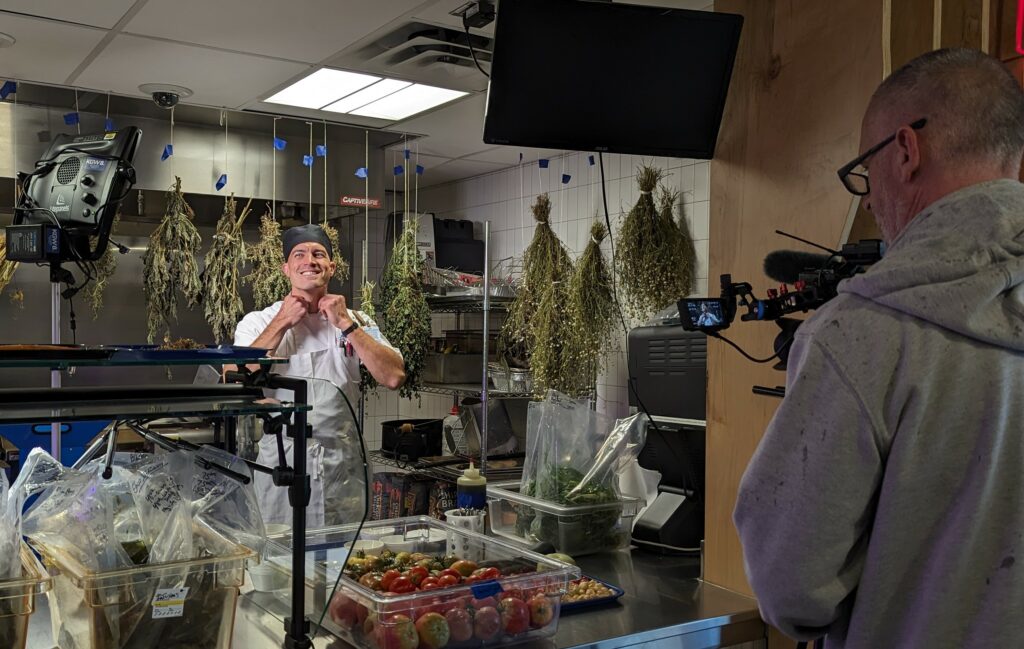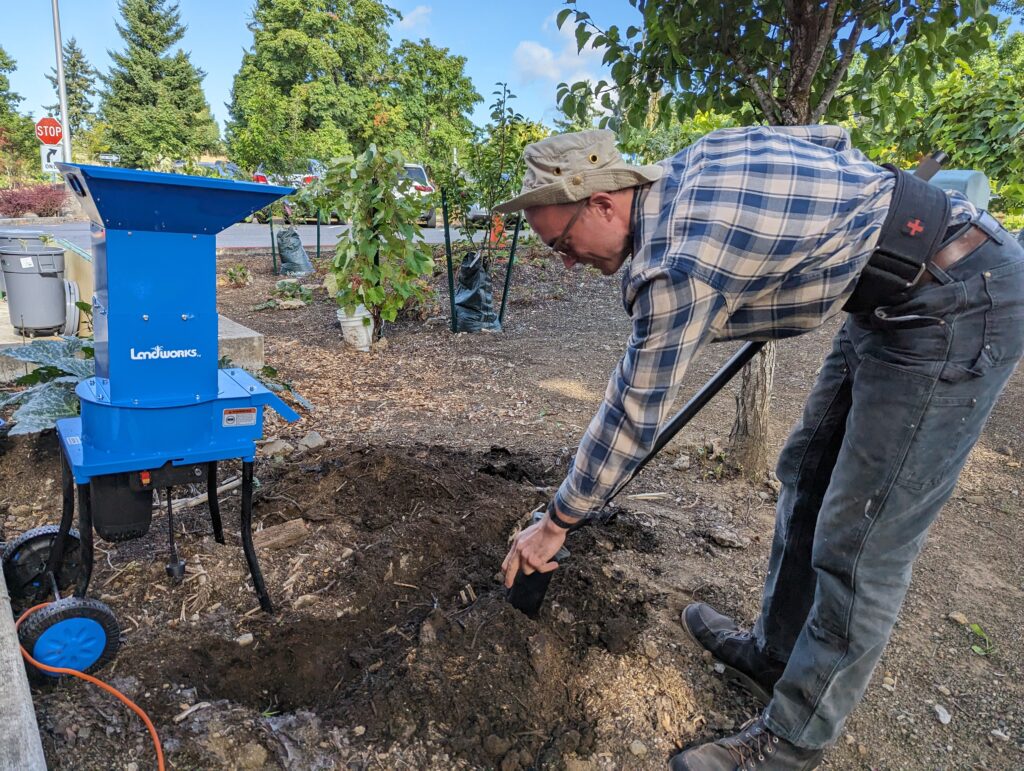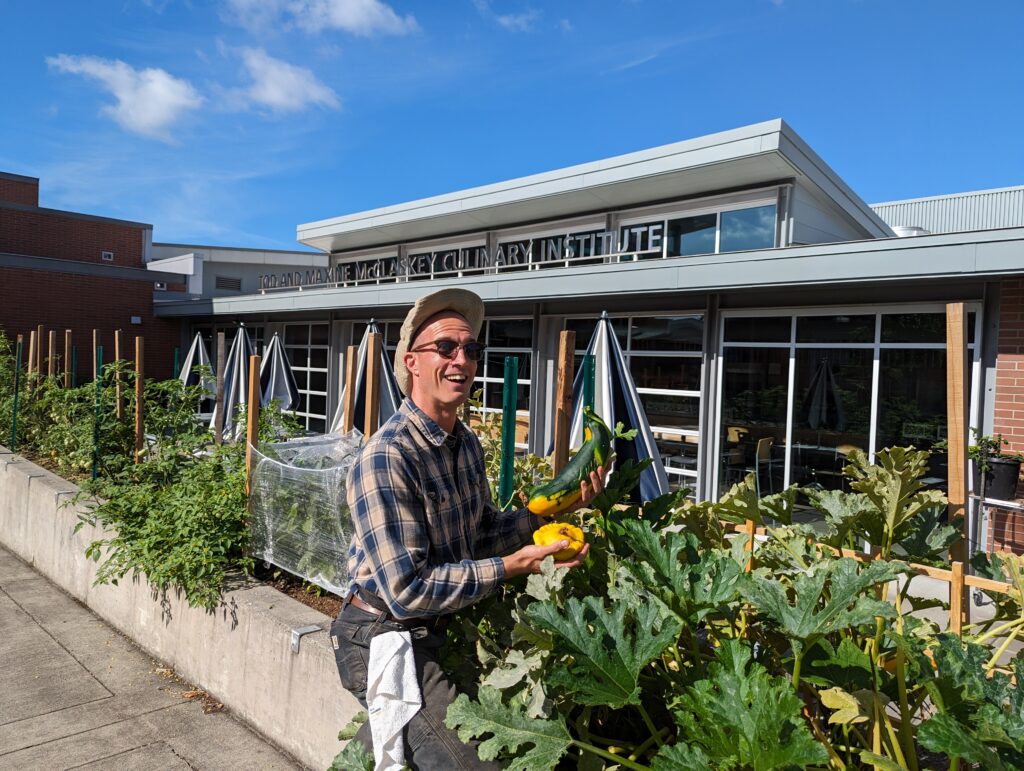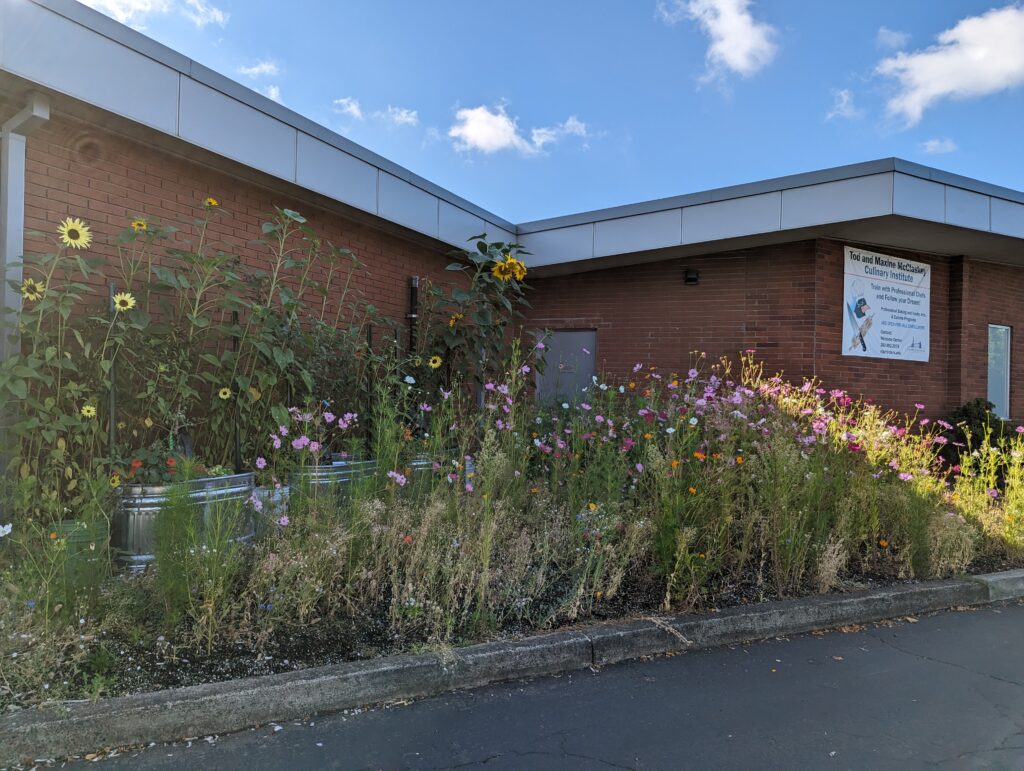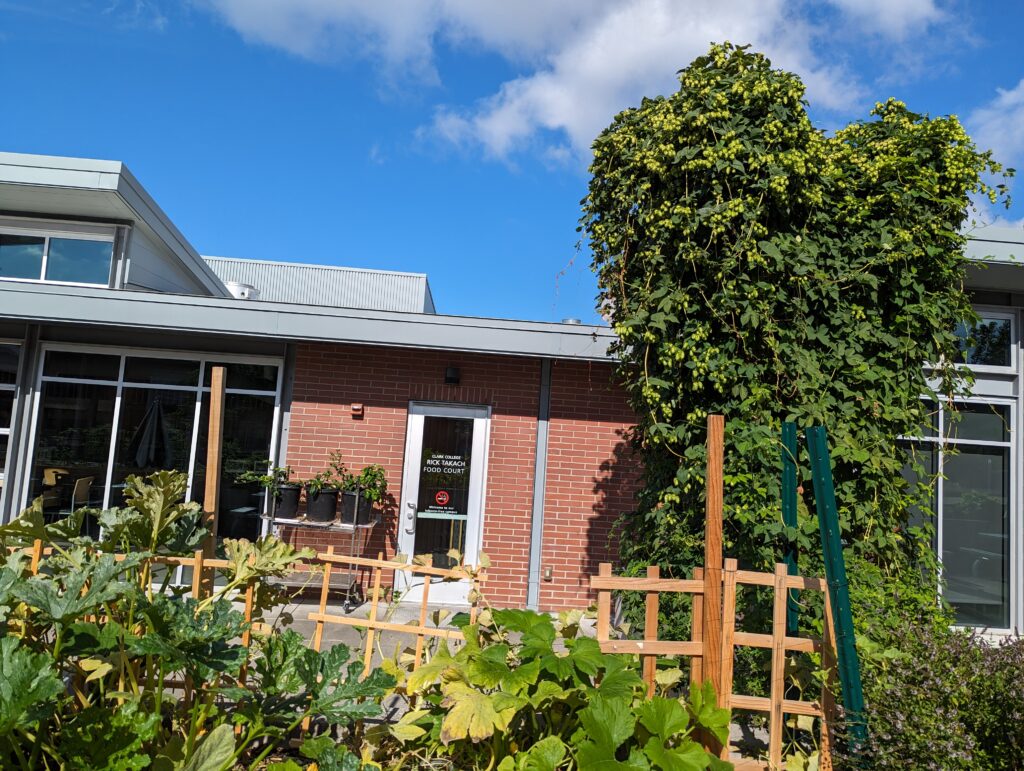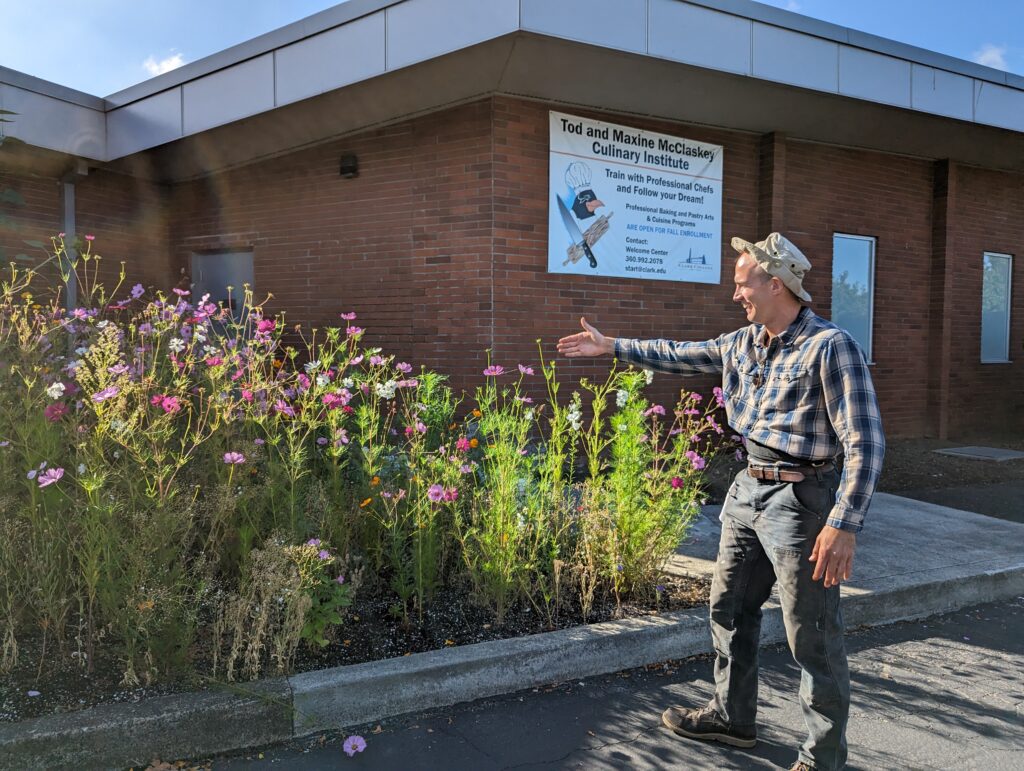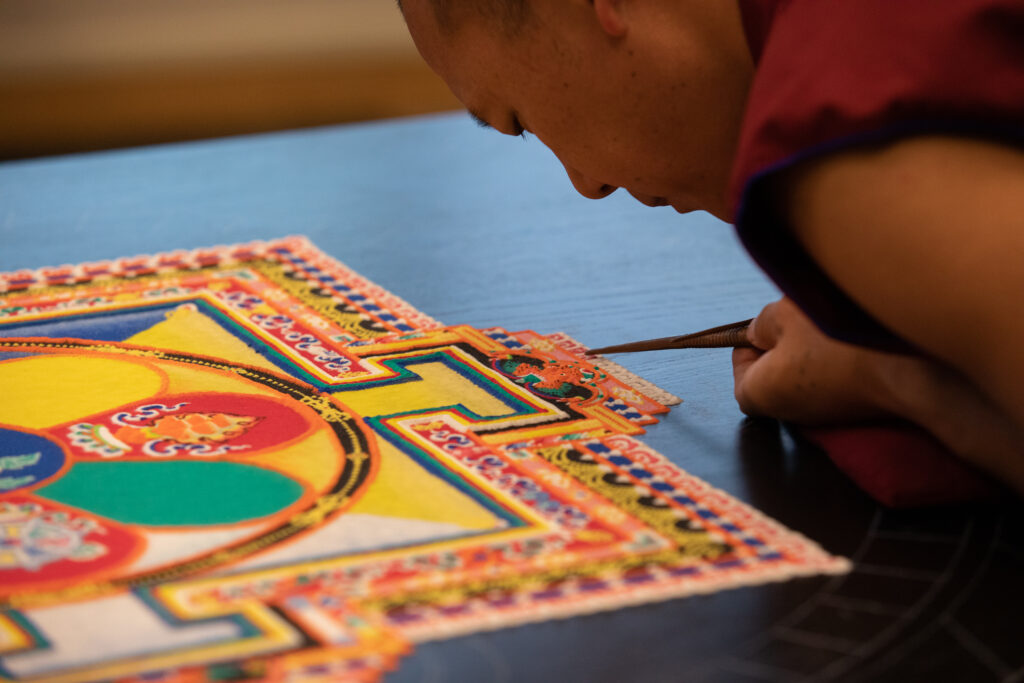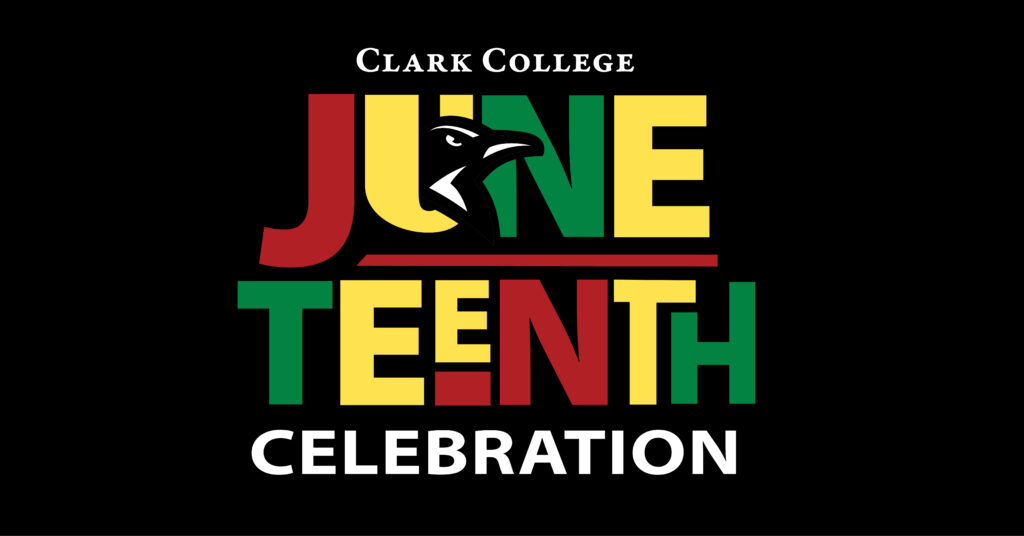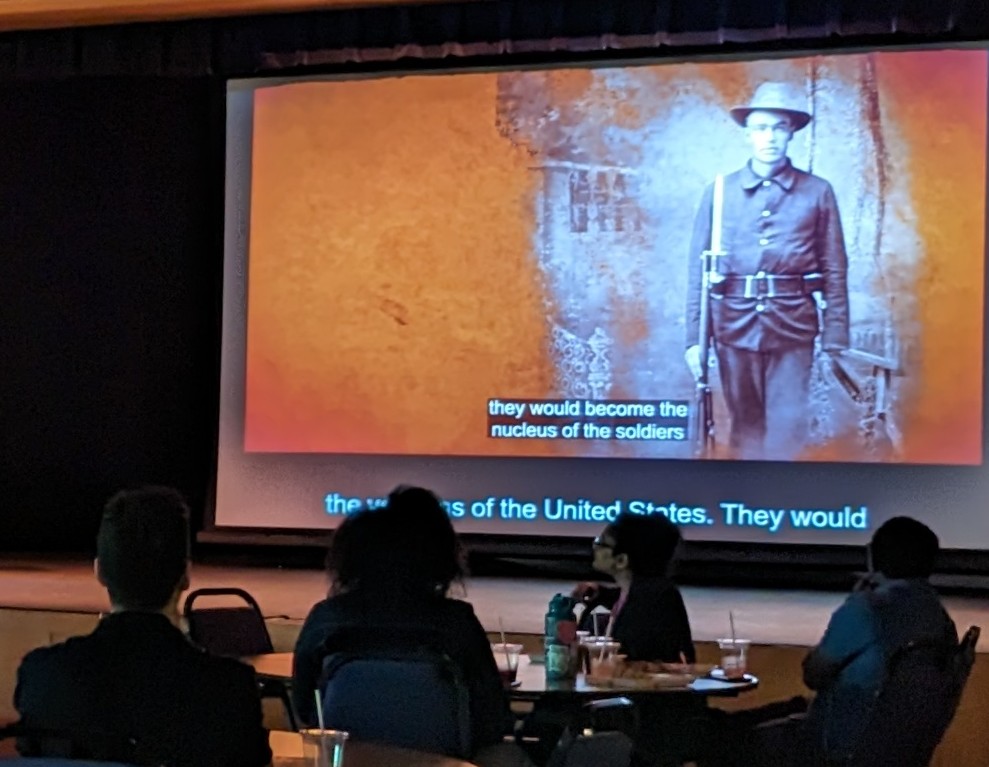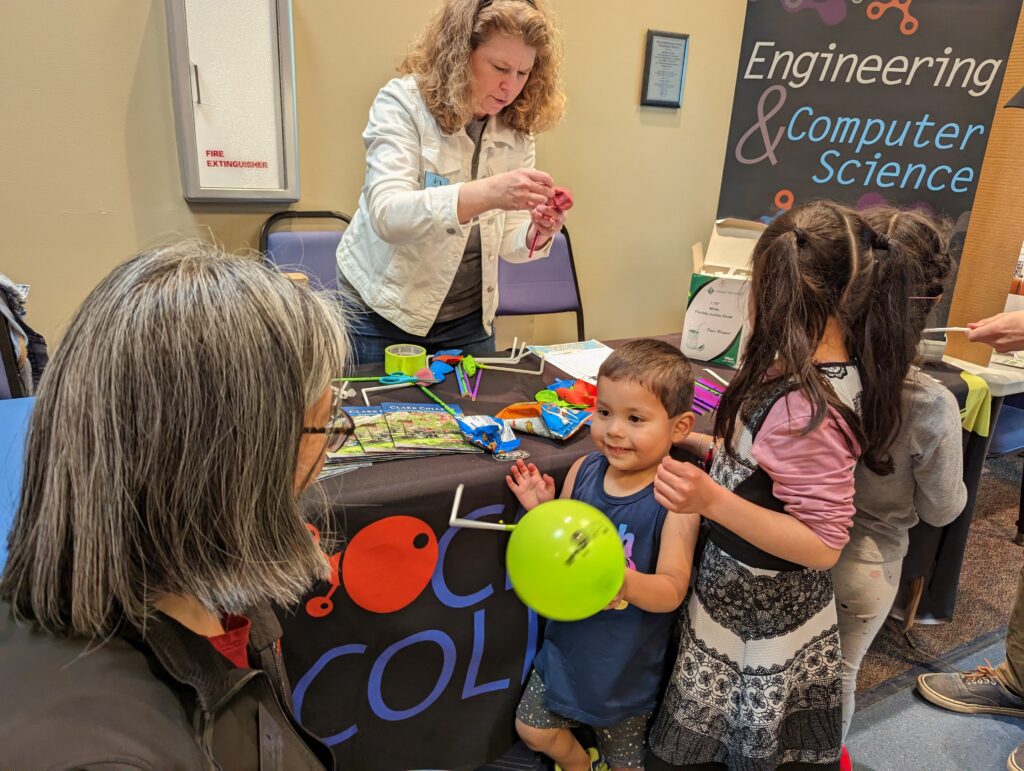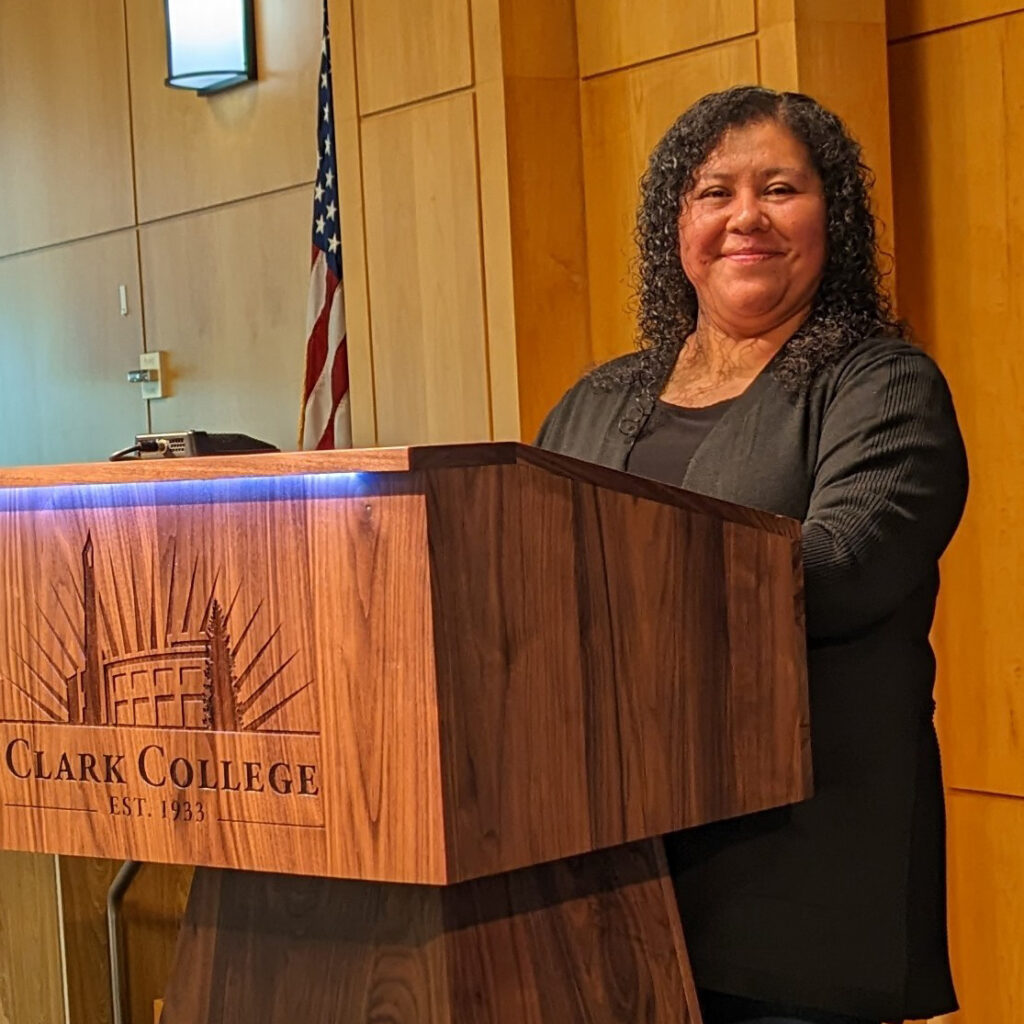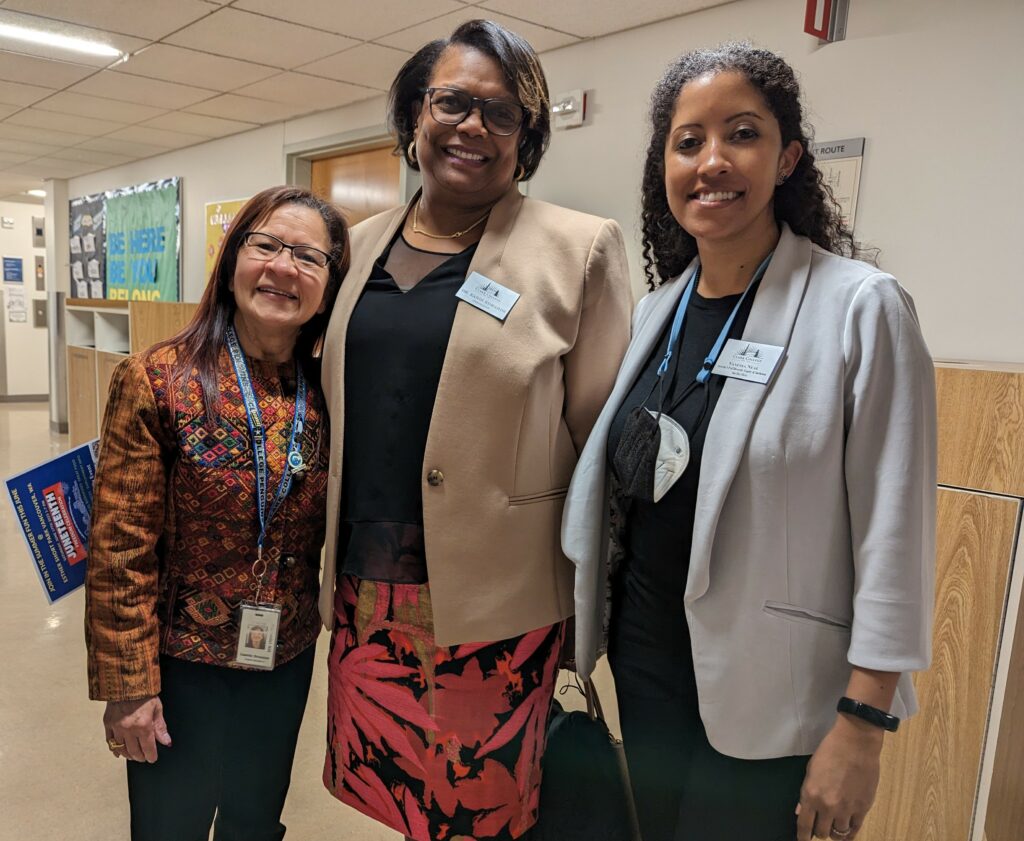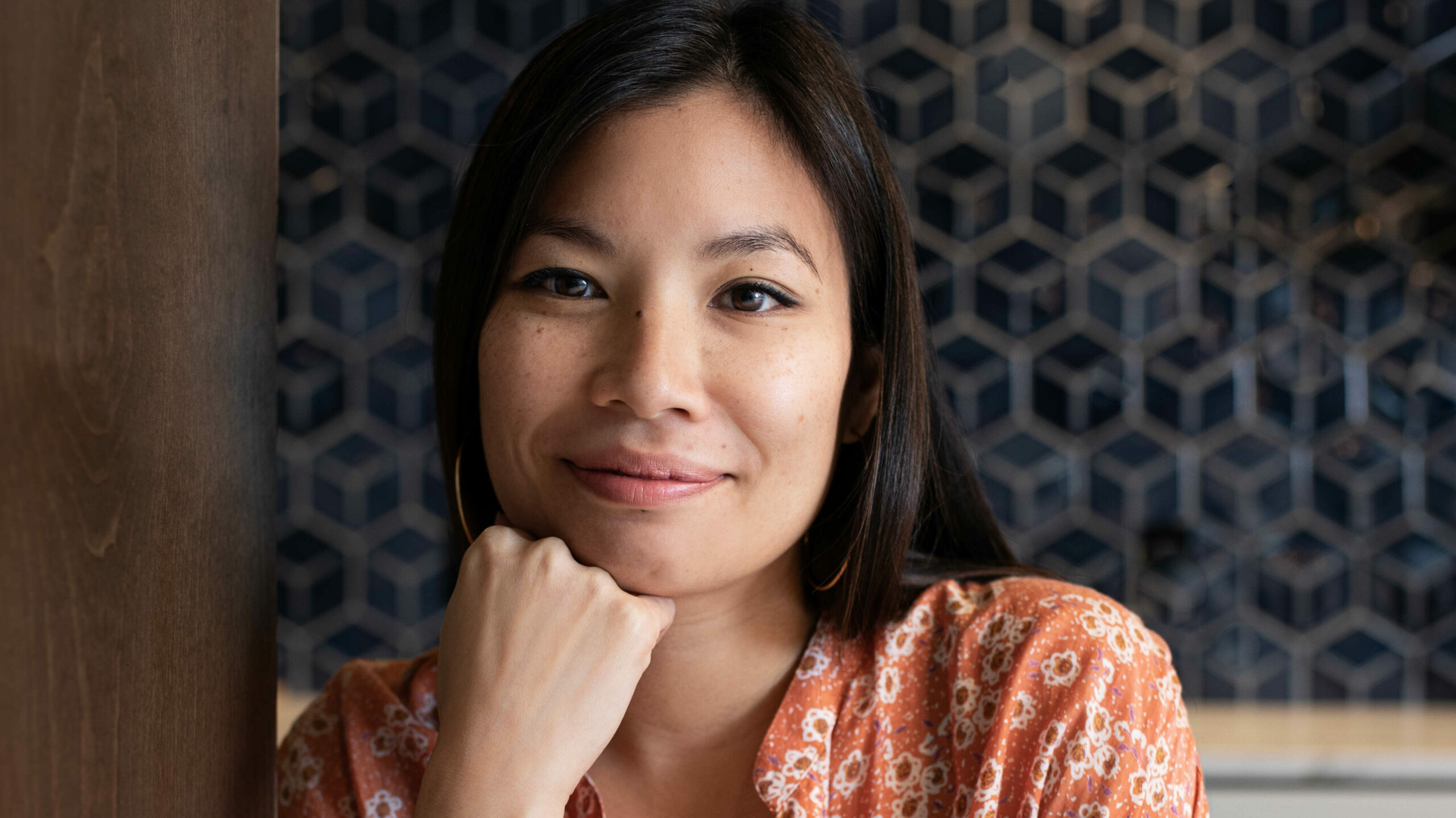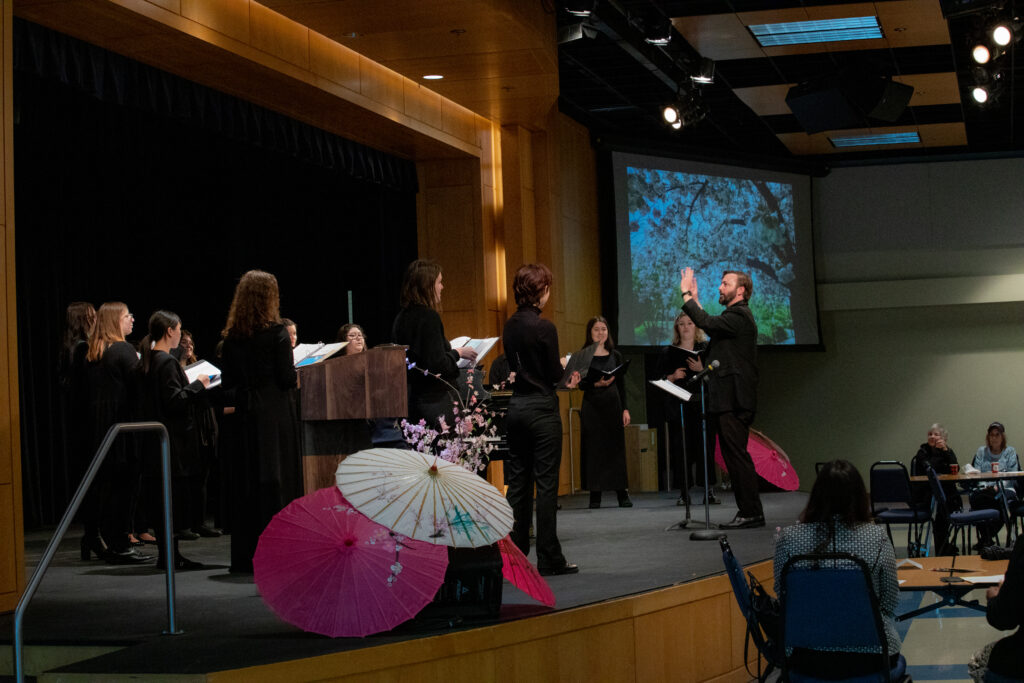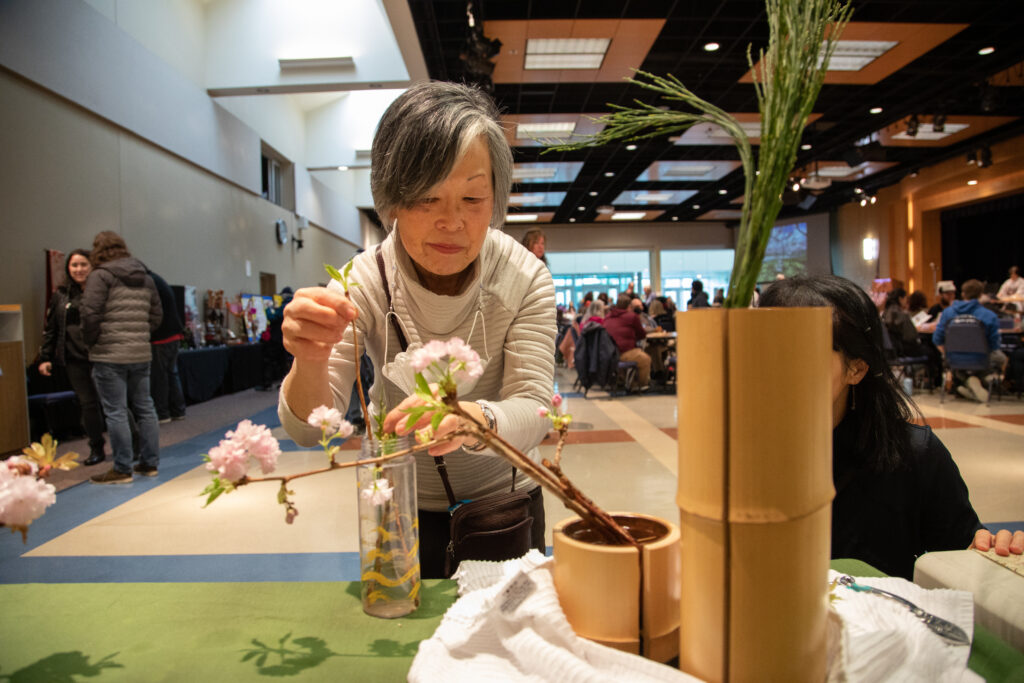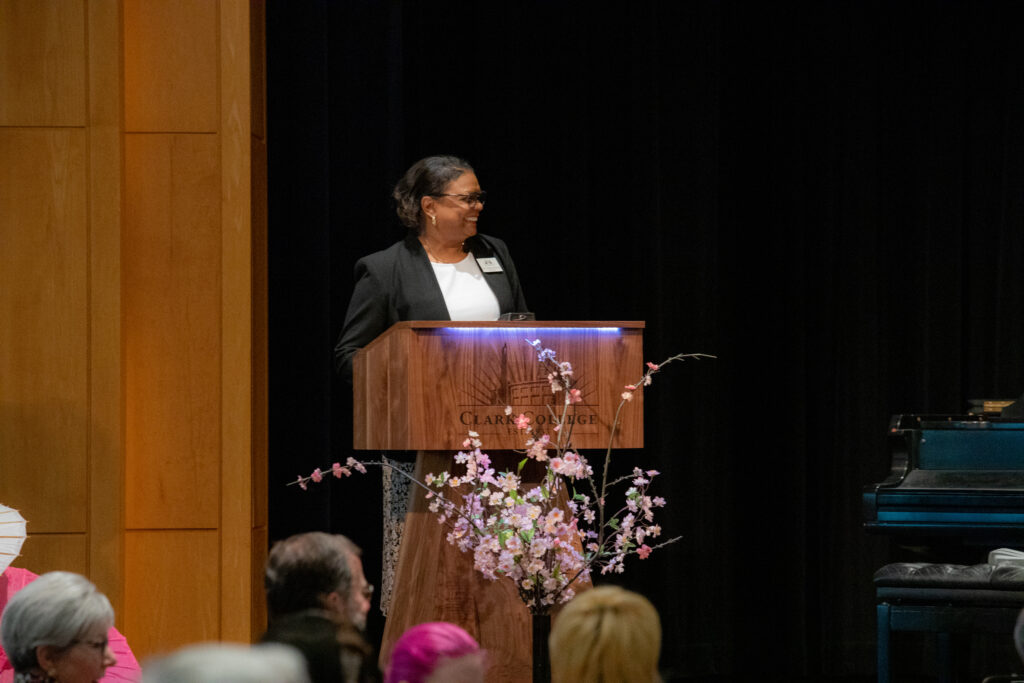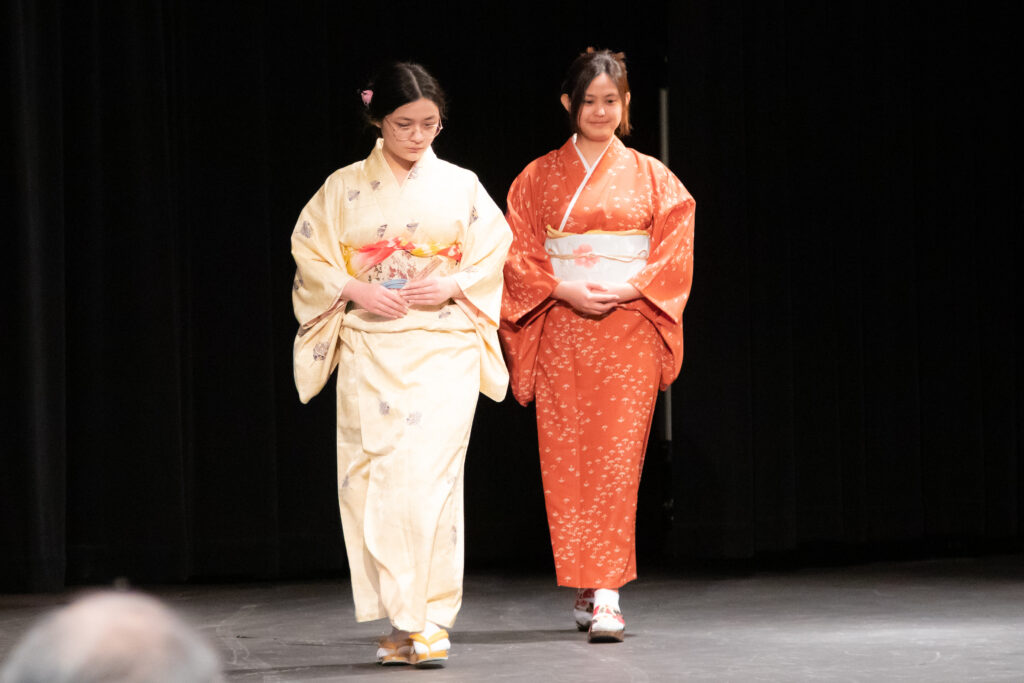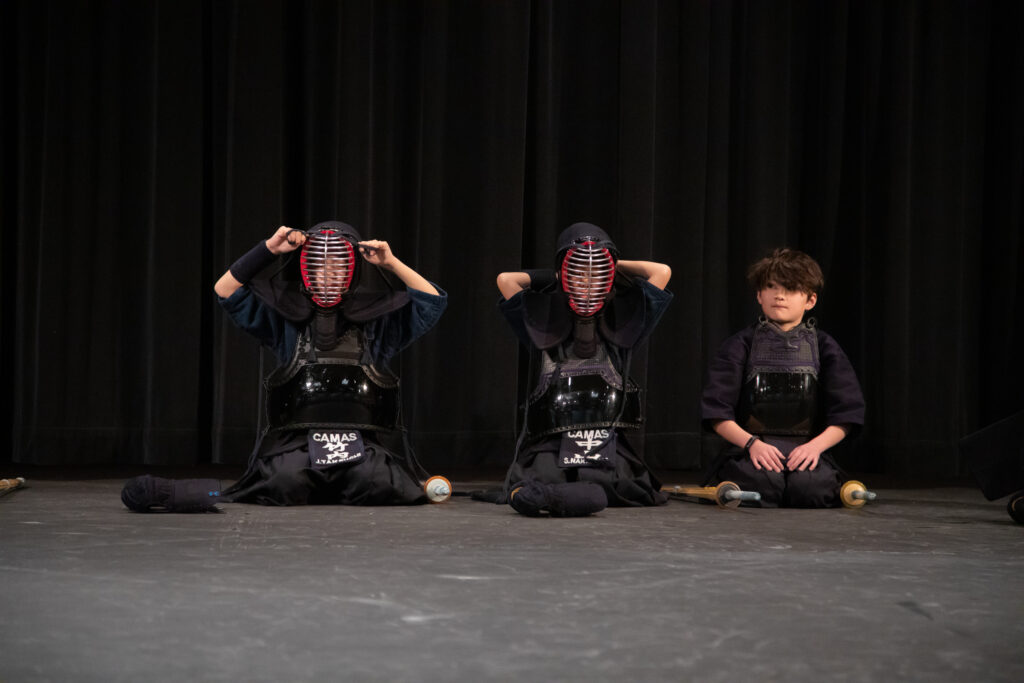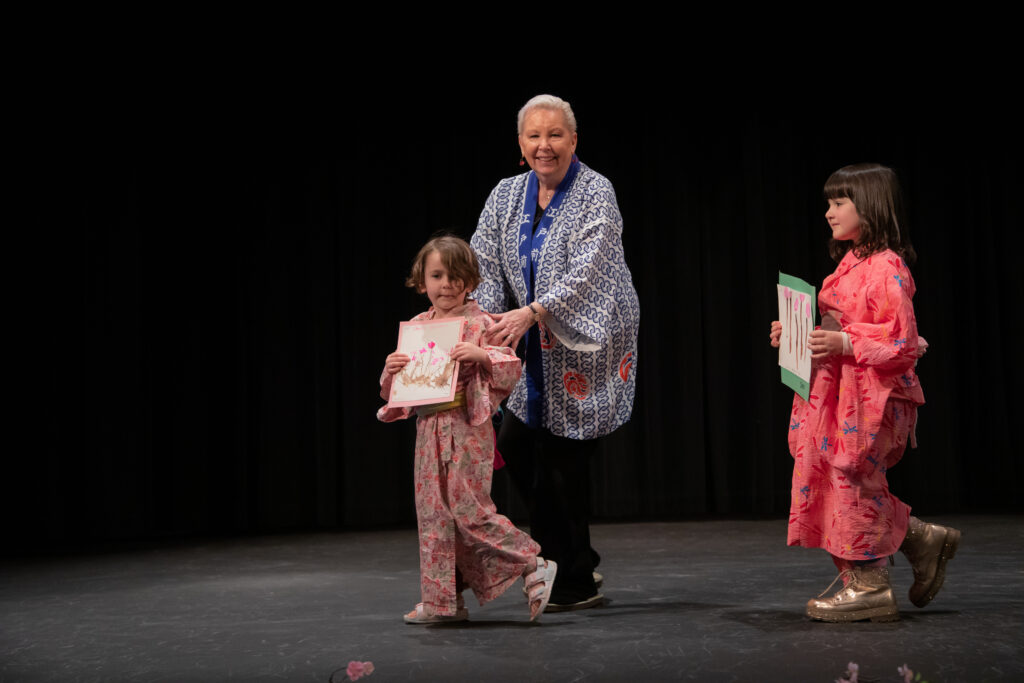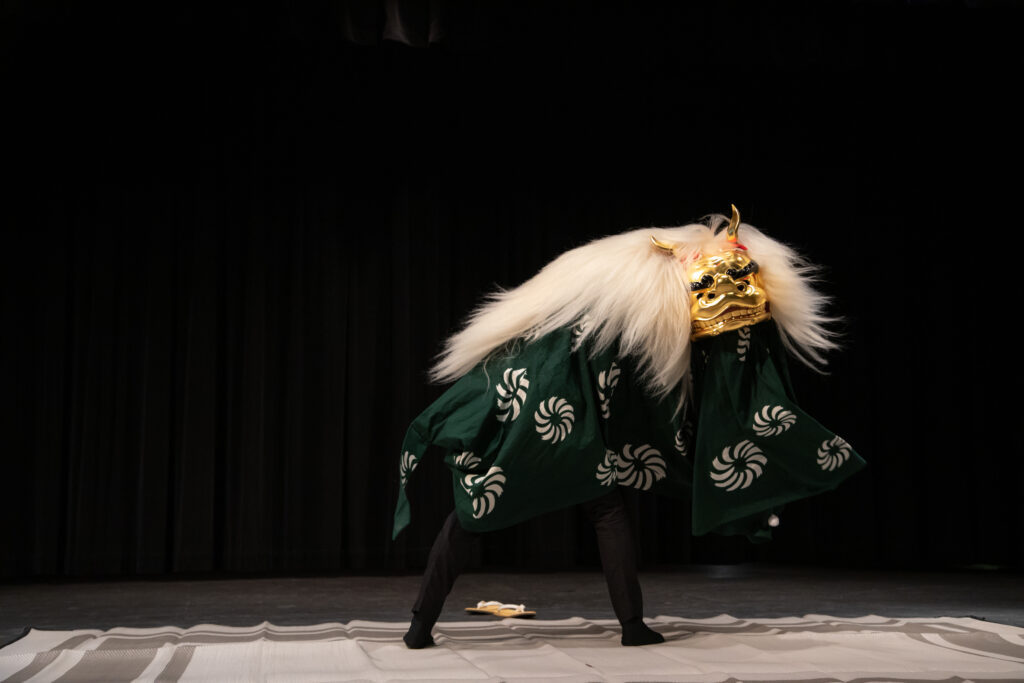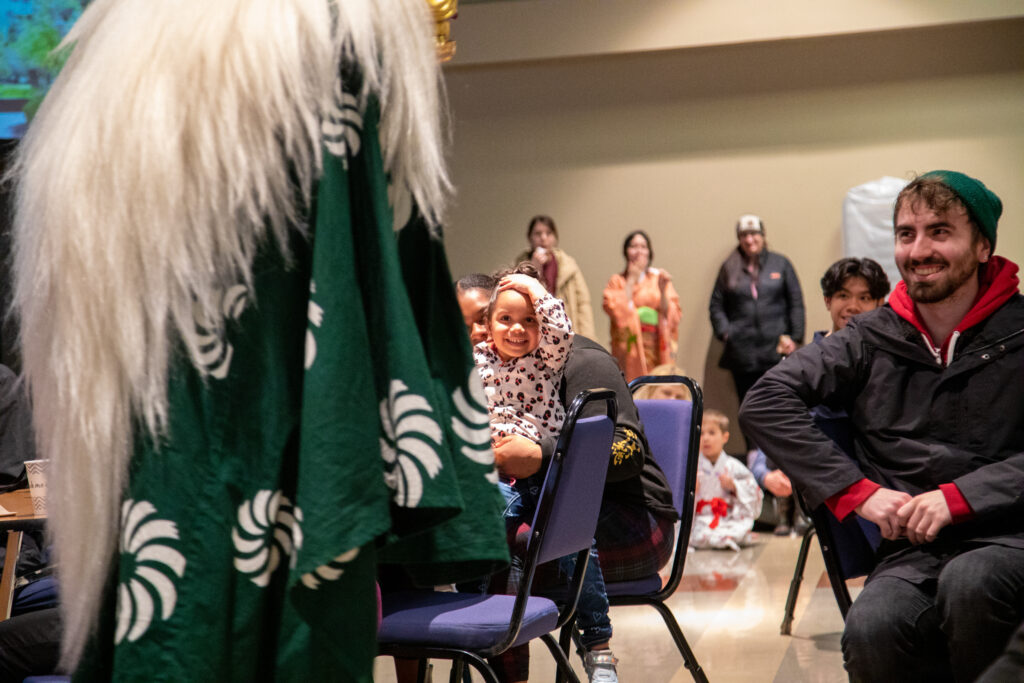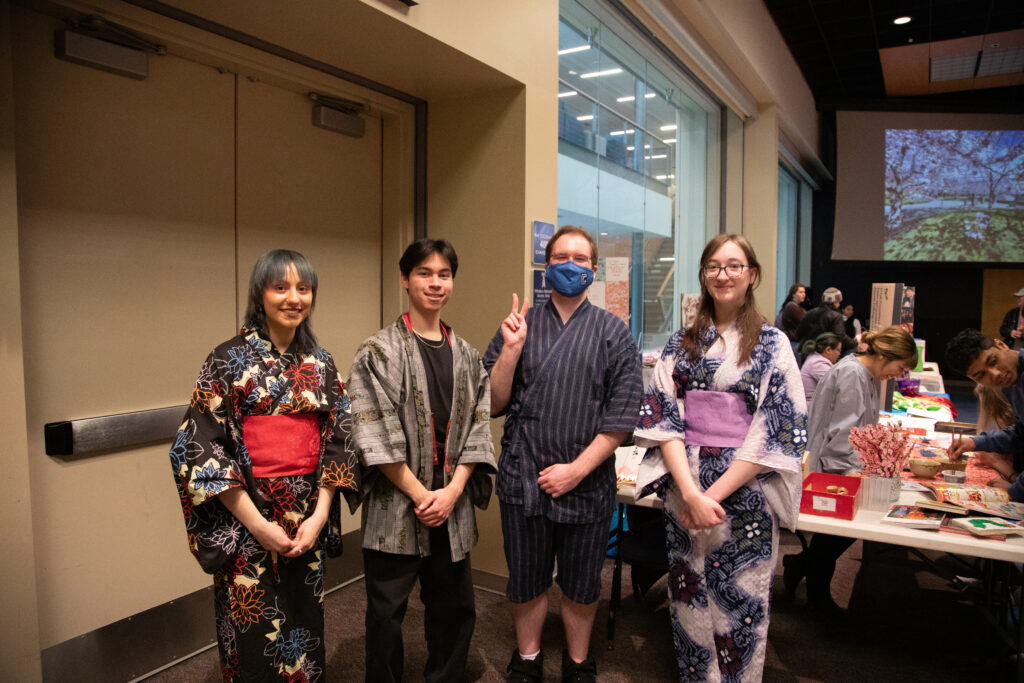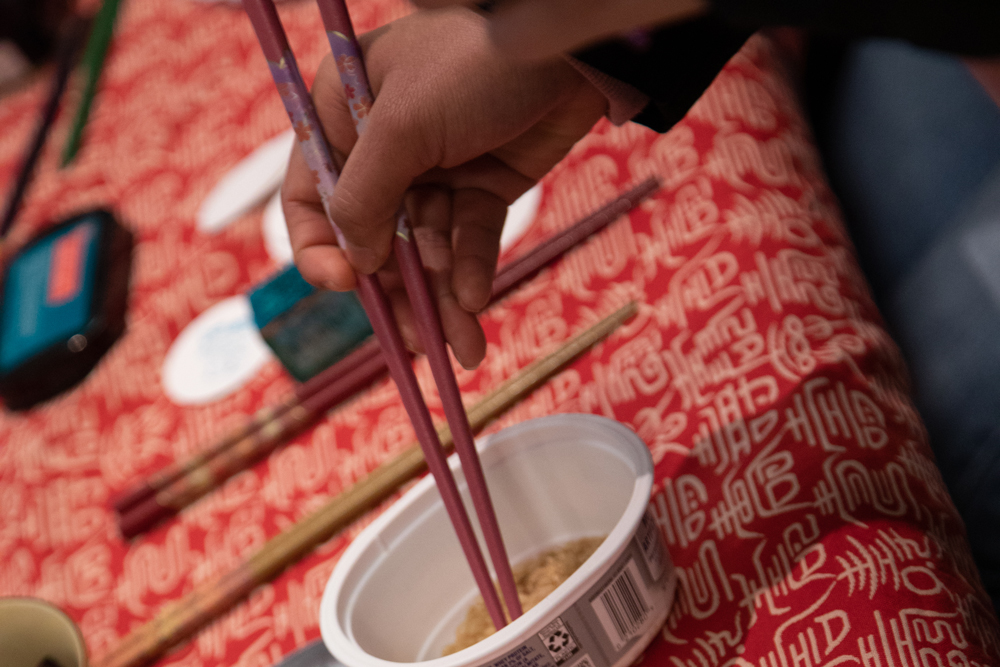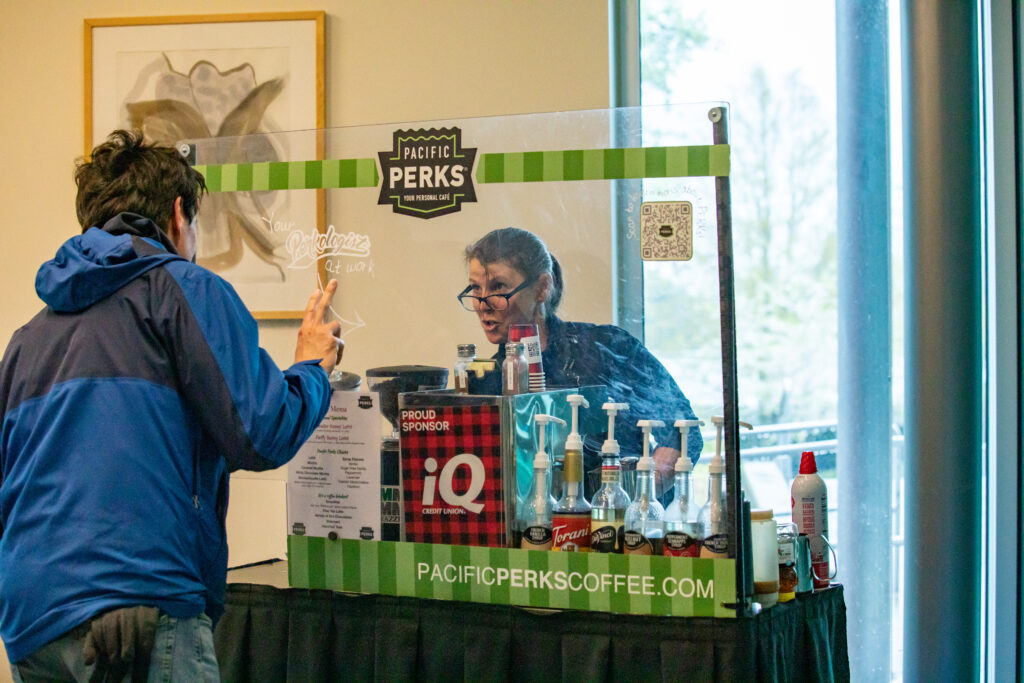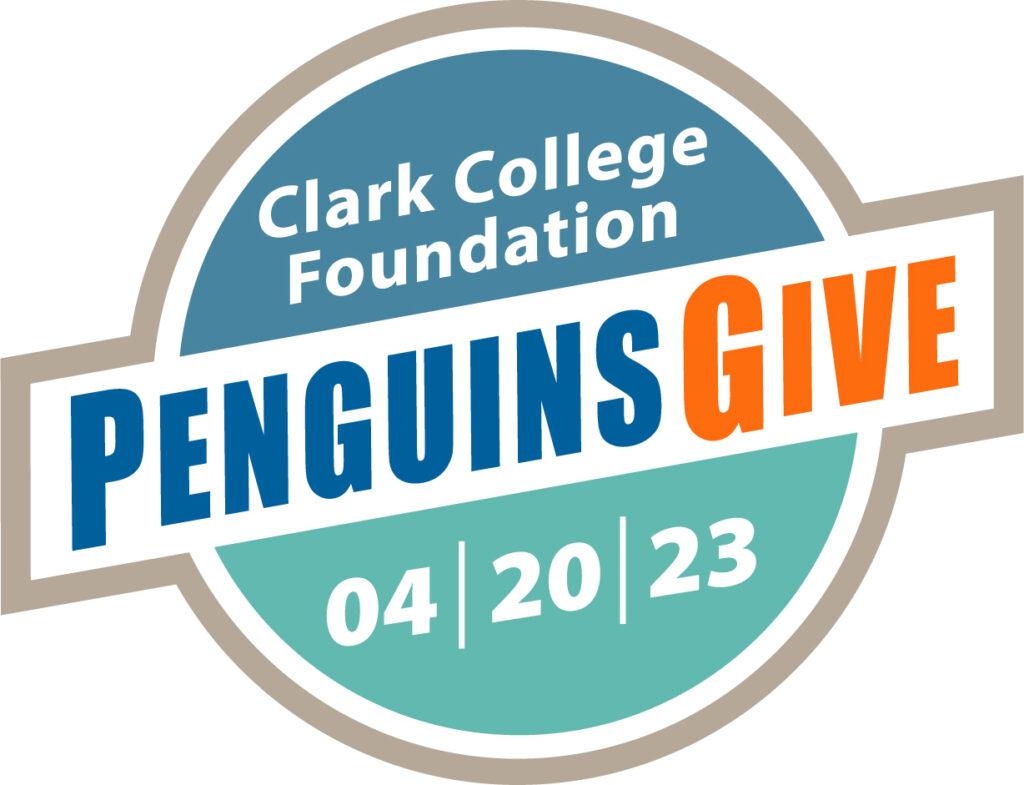Mural Painting
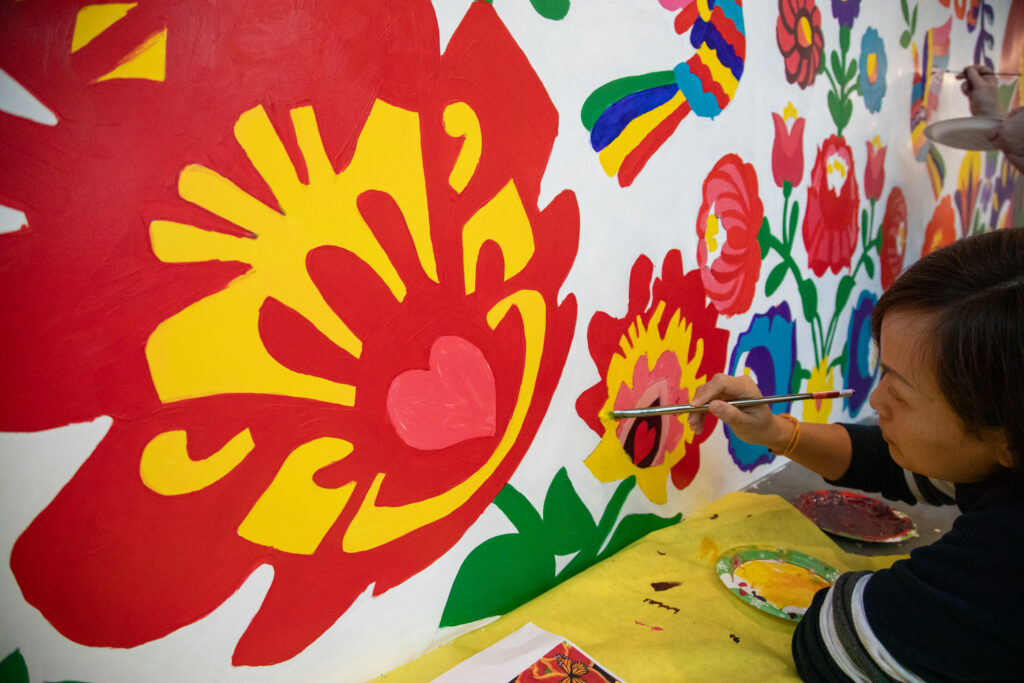
Clark College welcomed muralist Christian Barrios, a Clark College graduate, to lead the community in creating a mural project during International Education Week from November 13 to 15.
The college community gathered for a mural painting party. Erika Nava brushed red paint onto a flower petal on a large sheet of metal taped to the wall in the Penguin Student Center. Nearby, Rosalba Pitkin brushed dusty pink paint onto another flower. They were joined by other Clark staff and students adding their brushstrokes to a new mural taking shape on campus.
Overseeing the project, artist Christian Barrios, who designed the mural, mixed paint colors, offered input to the painters and added his own colorful brushstrokes.
Titled “Coming Together for Art and Peace,” the mural provided an opportunity for the Clark community to gather, celebrate diversity, and promote the values of international unity and peace. Barrio brings a connection and passion to this project, ensuring its resonance with the college and the local community.
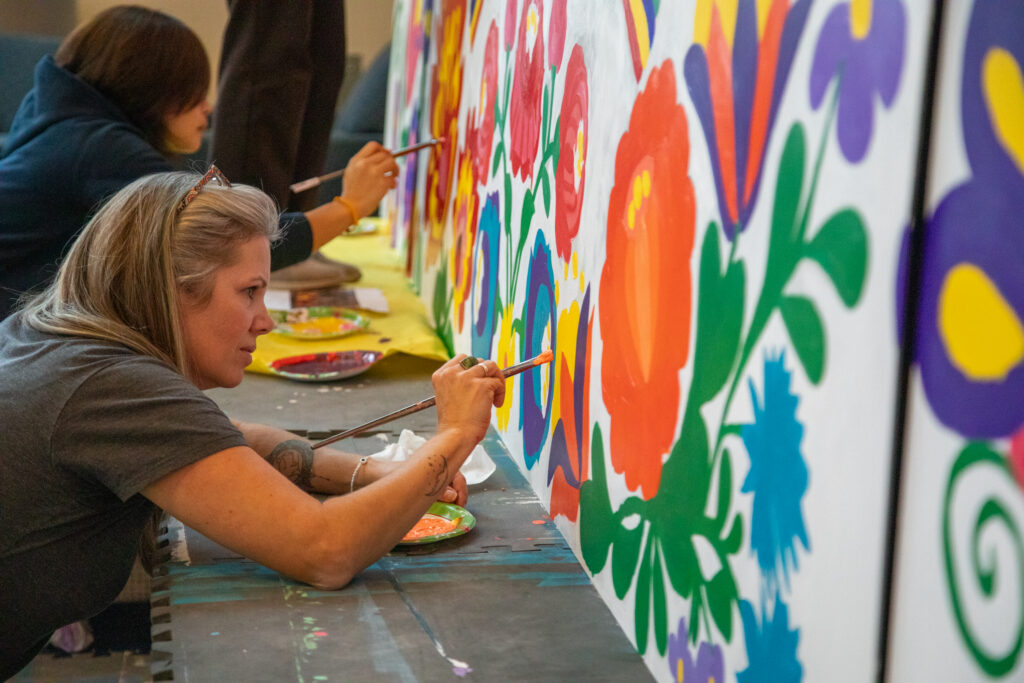
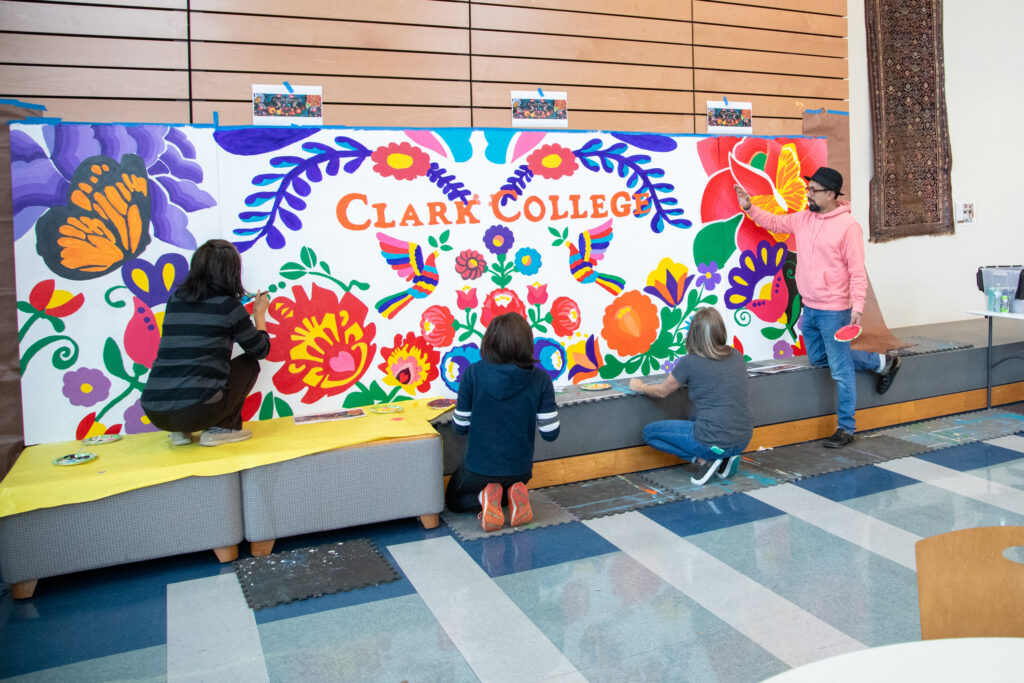
Nava and Pitkin collaborated to bring Barrios and this community art project to campus. Pitkin, who works in Clark’s Office of Diversity, Equity, and Inclusion, introduced Barrios to Spanish teacher Nava. She invited the bilingual Barrios into her classroom to talk with her students about fine art, public art, mural art, and graffiti. He told Nava he had received a grant from Community Foundation of Southwest Washington and Fourth Plain Forward to create a mural in a public school. Barrios wanted to create the mural at Clark.
That sparked Nava, Pitkin, and Barrios to begin brainstorming a community mural designed by Barrios. They presented their ideas to President Edwards, ASCC, and then the Art Selection Committee.
“That’s how it started,” Nava said, waving her paintbrush for emphasis. “And here we are!”
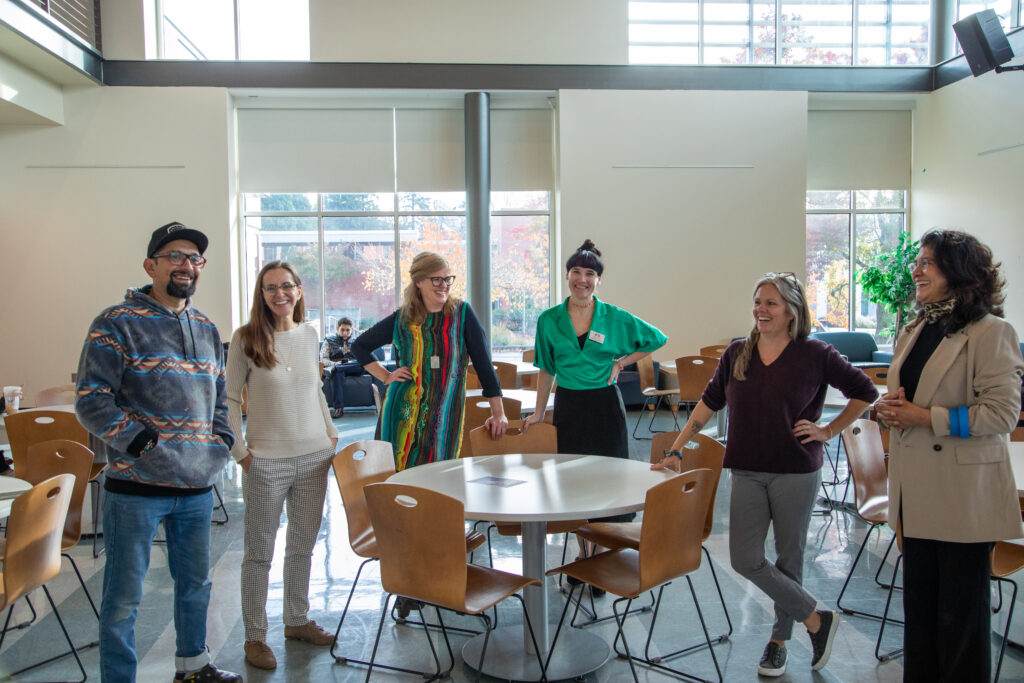
Mural on metal
The “canvas” consists of three large metal sheets, the same type used for street signs. The paint is an artist’s acrylic polymer that Barrios uses to create outdoor murals.
In his studio, Barrios drew outlines of the design elements: stylized embroidered flowers scattered across the scene, a Monarch butterfly floating in the breeze on either side and in the center, two rainbow doves aloft with olive branches in their beaks.
Barrios said it would take at least three layers of paint to create the mural: “The first layer is pastel. The second and third layers will be darker. It creates more color saturation. Makes it more vibrant.”
To demonstrate, Barrios pointed to the Monarch butterfly’s wings. The first layer was a bright yellow. He explained that as layers are added, the wings eventually will appear a deep orange.
After all layers are painted, Barrios will take the mural back to his studio where he will outline the shapes in black and add a black background. He also will add sealant to protect the art.
On the first morning of painting, Barrios shared his passion for creating murals.
“When I was growing up in Mexico City, I went to a lot of museums, but I don’t remember the artwork,” he said. “But I do remember the murals on the street. People painting on the street—for us. I love public art and doing community projects.”
The completed mural will be installed inside Joan Stout Hall after the unveiling on February 13, coinciding with International Day. It will join hundreds of public art pieces installed on Clark’s campus.
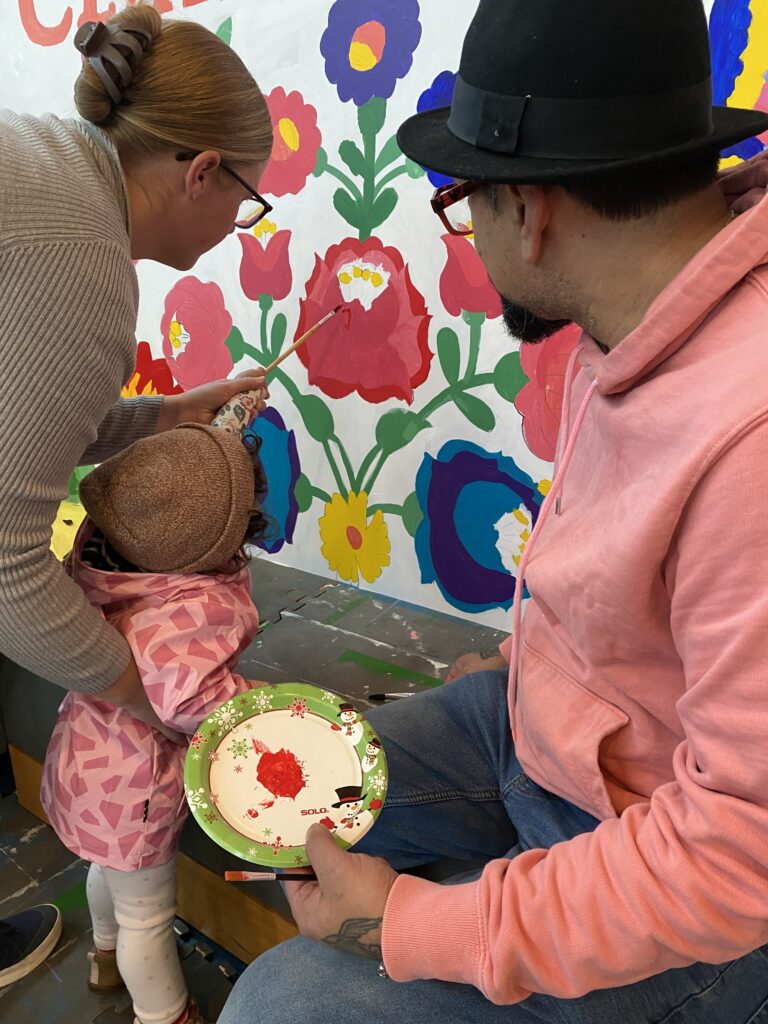
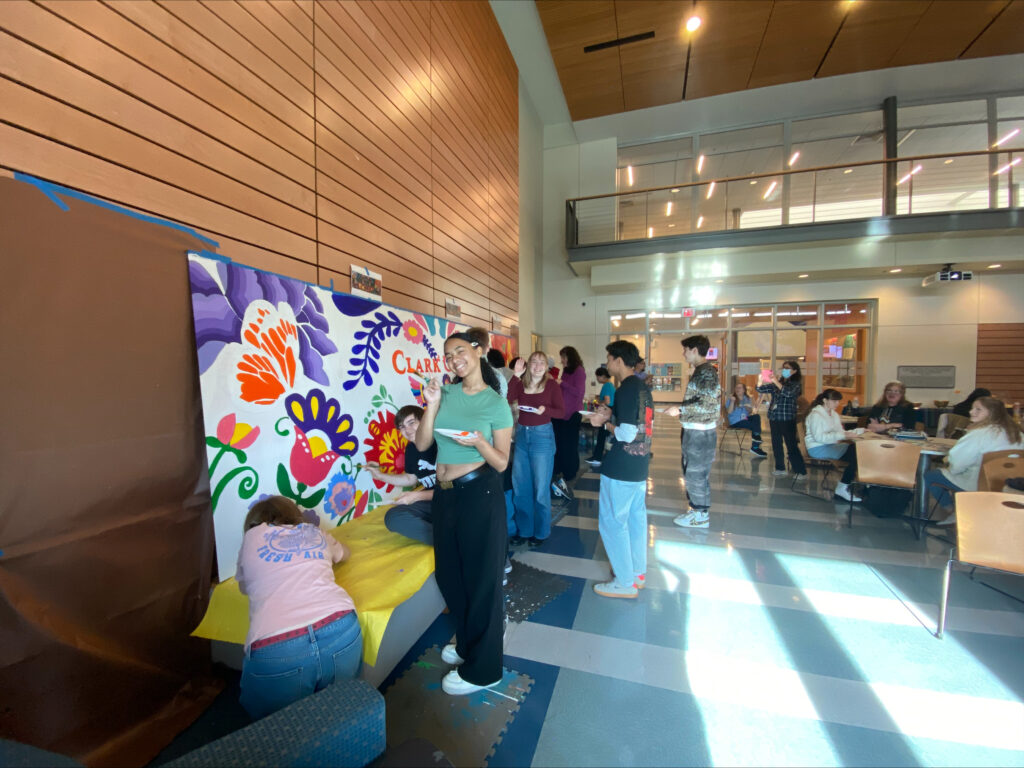
Many students came to participate in the painting over the three days, even Clark’s youngest students from early childhood education. Many students expressed how this was a much-needed mental health break this week, and came back multiple times throughout the 3 days. Spanish language, communications classes, and more showed up to support the project.
Special thanks to Fourth Plain Forward, La Casita Art Gallery and Cultural Center, and the Community Foundation for Southwest Washington for their support of this project.
About Christian Barrios
An accomplished artist and muralist, Barrios’ artwork has made a significant impact on the Vancouver community. A graduate of Clark College, Barrios is deeply committed to promoting unity and diversity through his artwork, collaborating with organizations including Fourth Plain Forward and La Casita Cultural Center.
Born in Mexico City, he learned ceramic painting in the historic Talavera tradition from his family’s business. At 16, he moved to the United States, expanding his skills under master marquetry artist Gene Zanni and exploring painting, paper mâché, and photography.
Active in the Oregon and Washington Latino art scene, Barrios’ work has been exhibited at Portland Art Museum, The Dalles Art Center, and more. His art resides in private collections across Mexico, Canada, California, Oregon, and Washington.
Devoted to community impact, Barrios collaborates with organizations including the Regional Arts and Culture Council’s Right Brain Initiative and the Hombres Honor Program. He’s the driving force behind La Casita Art Gallery and Cultural Center, a hub promoting diversity and inclusion for LGBTQIA+, BIPOC, and neurodivergent communities.
Barrios’ recent mural on East Fourth Plain Boulevard illustrates his commitment to enhancing neighborhoods by celebrating diverse cultures through art. His work beautifully bridges cultural divides, making him a remarkable artist and community advocate.
Learn more about Barrios and his work here.
